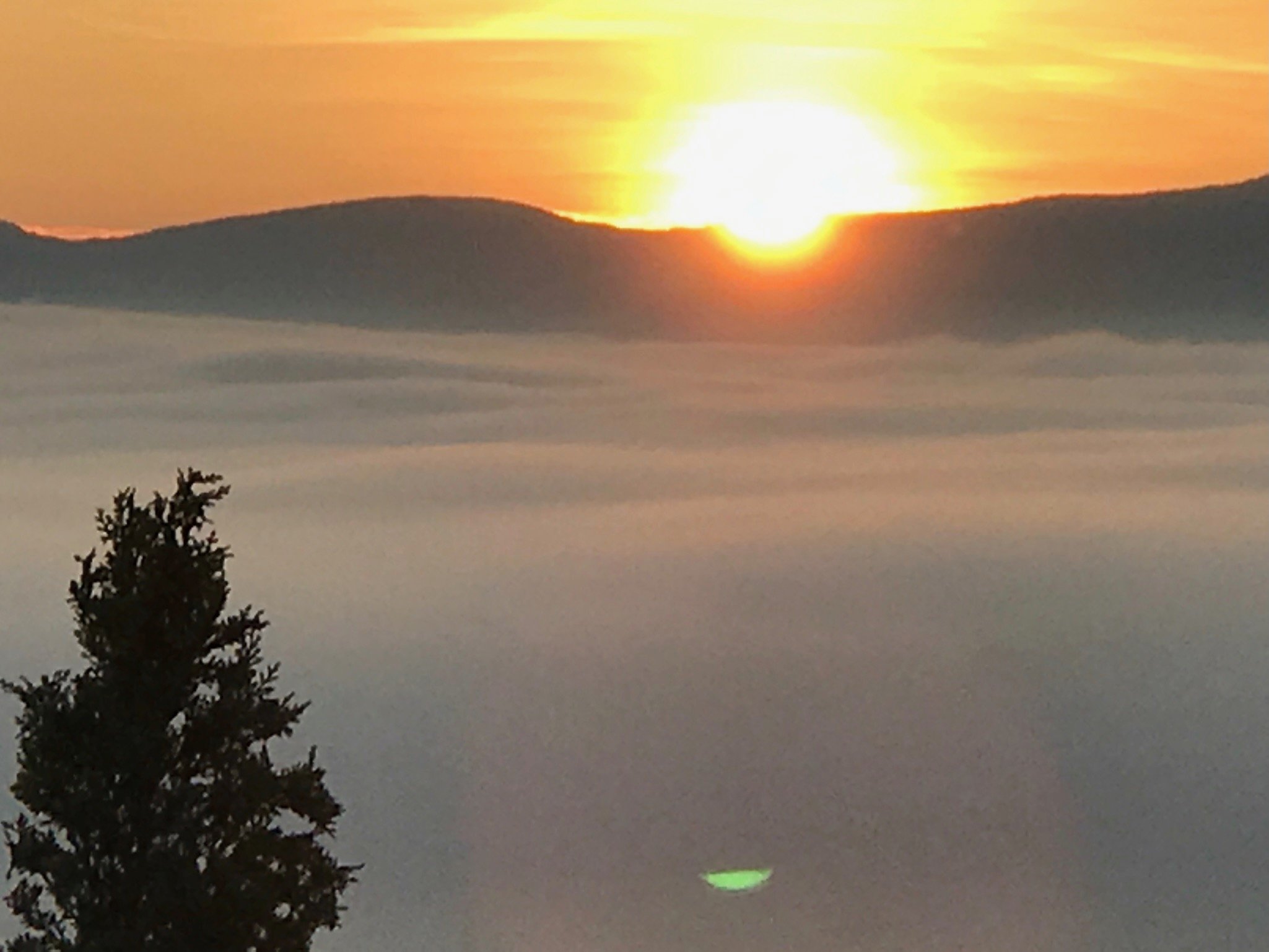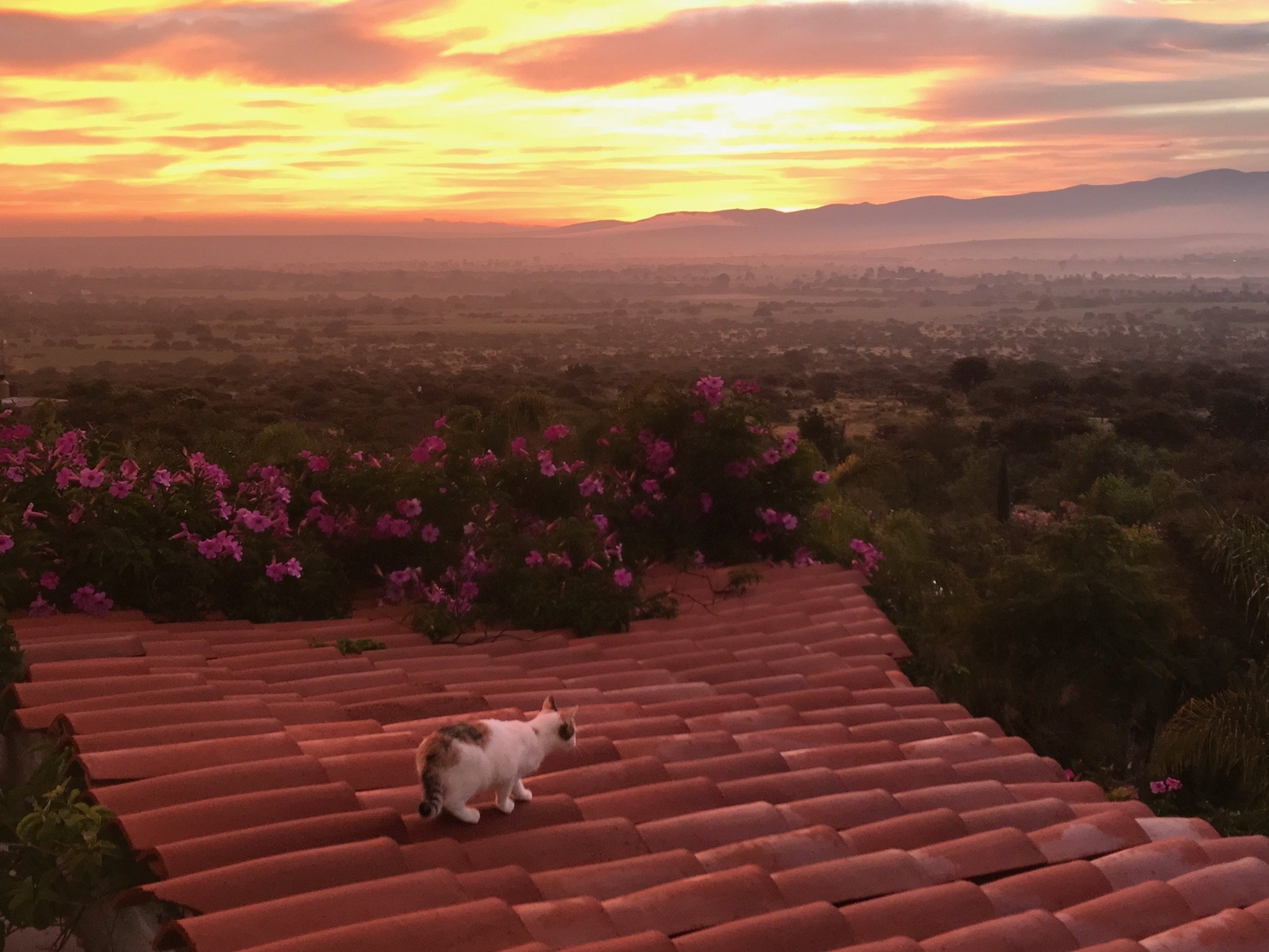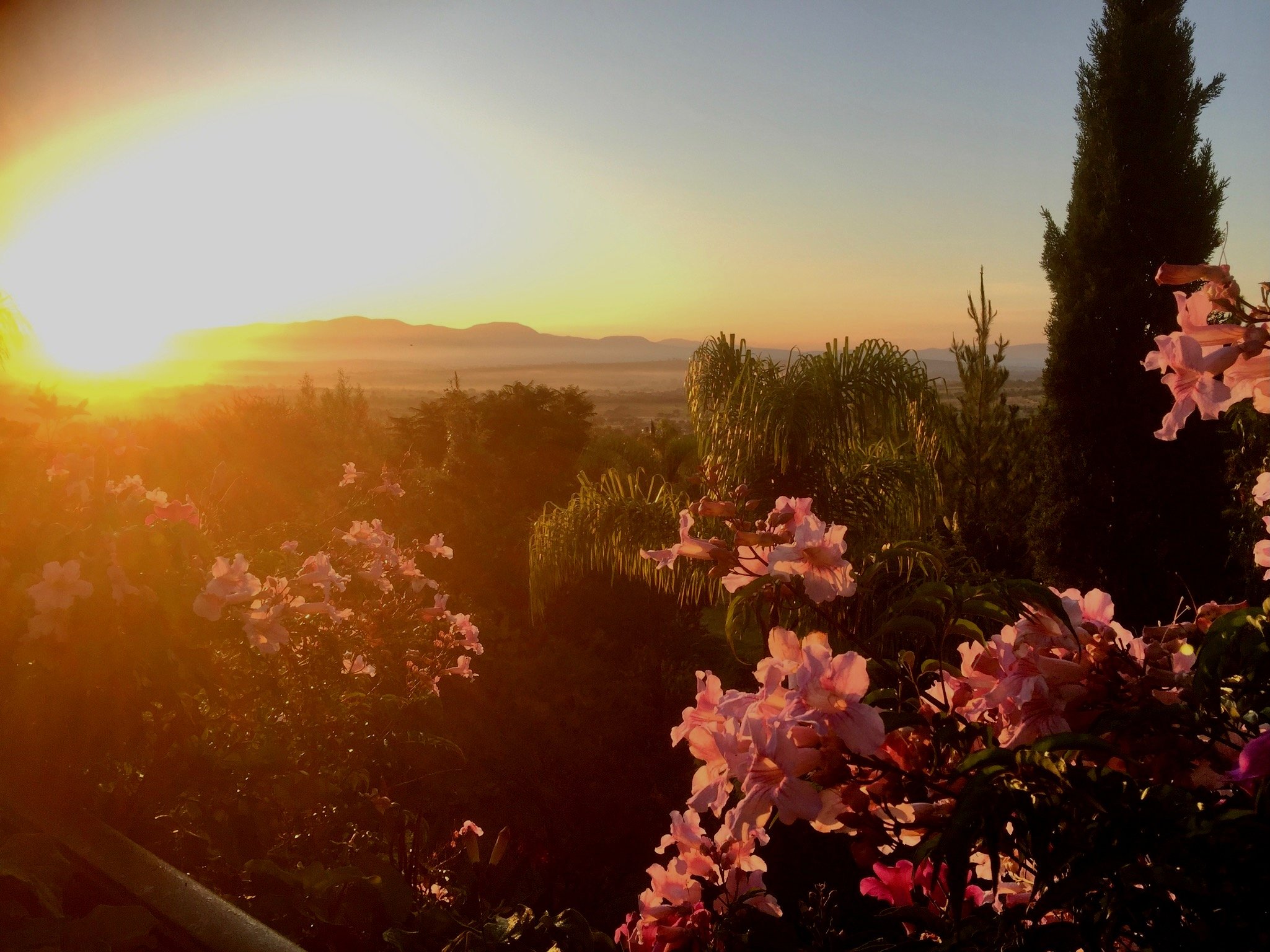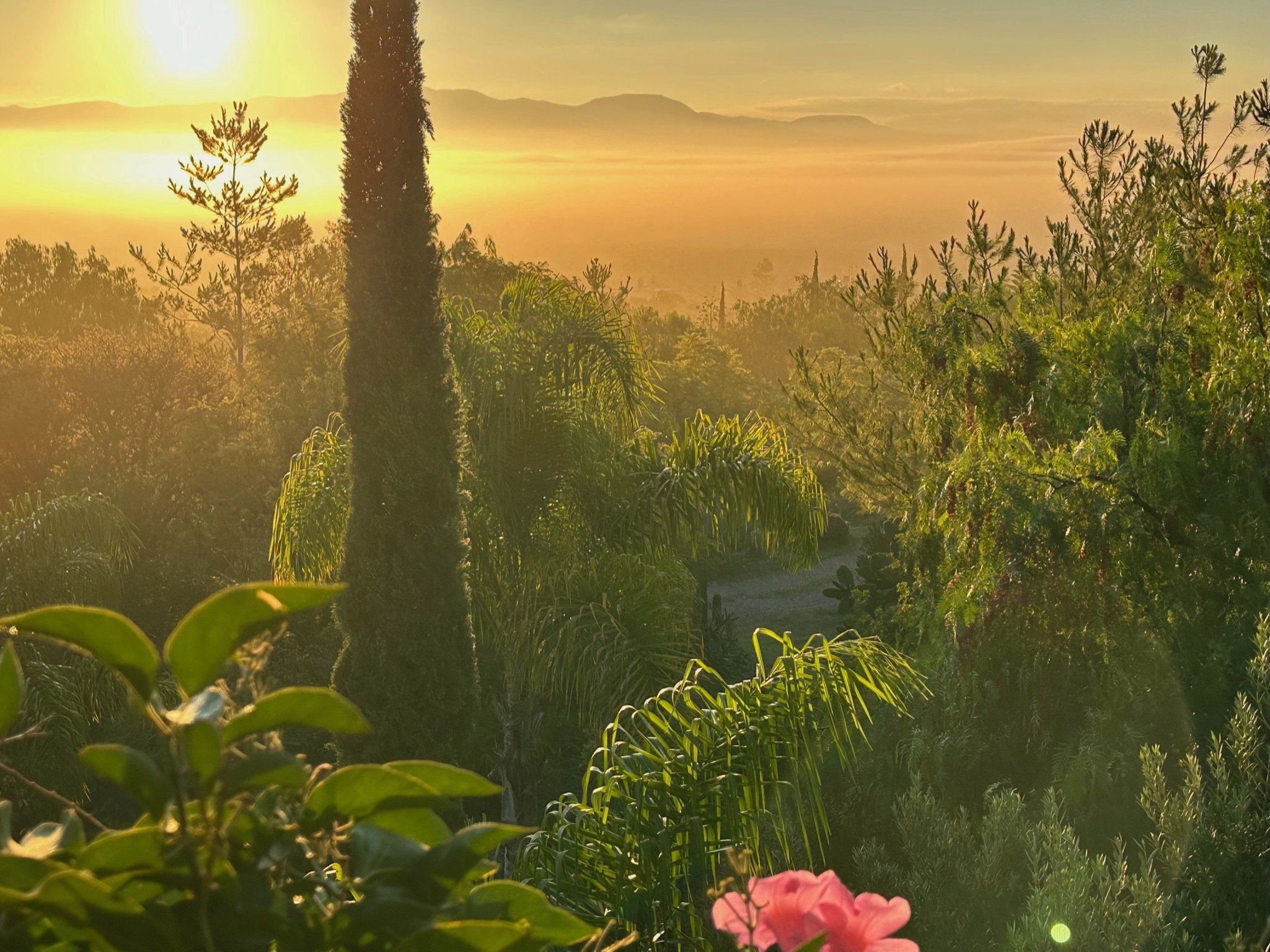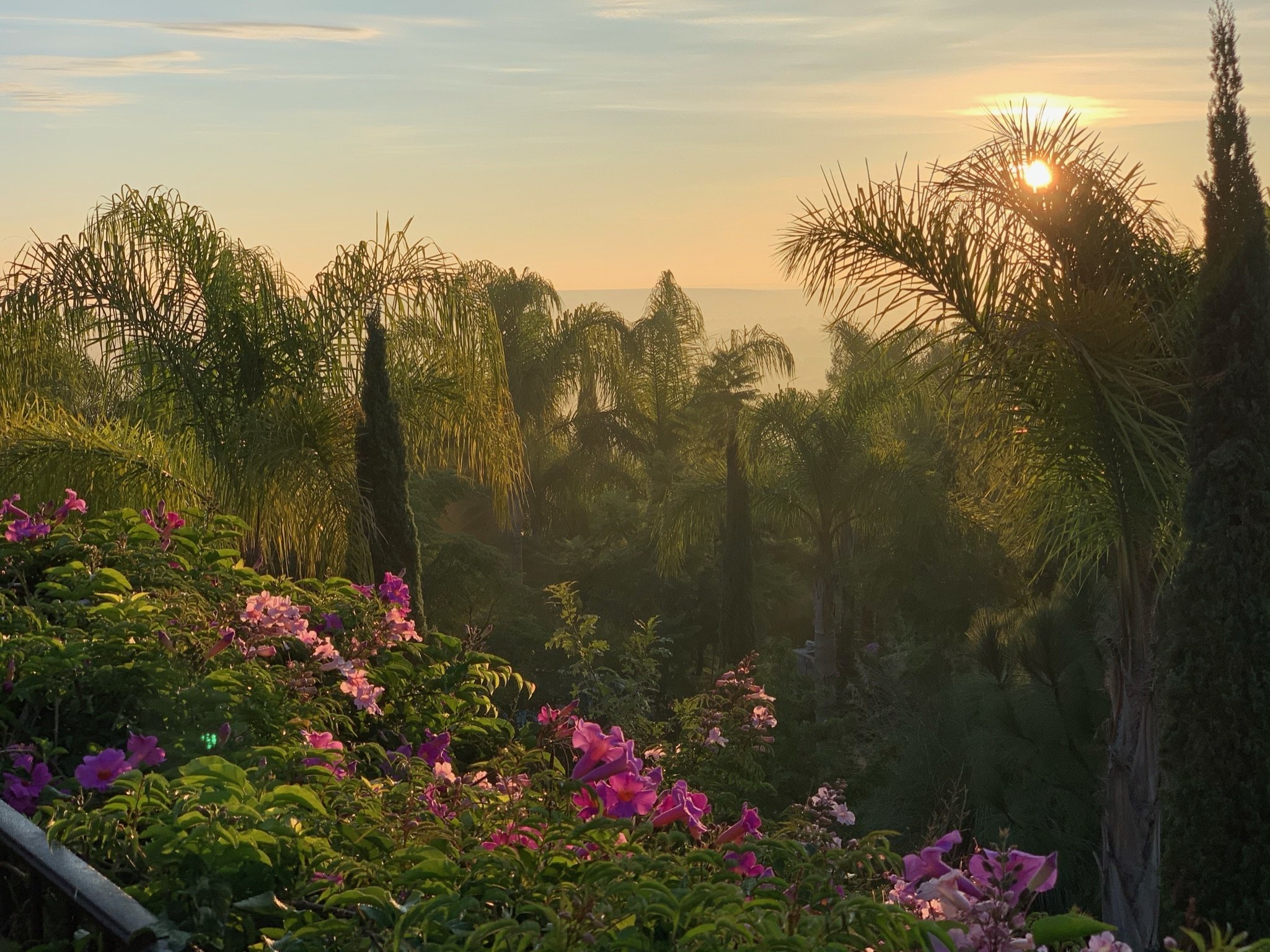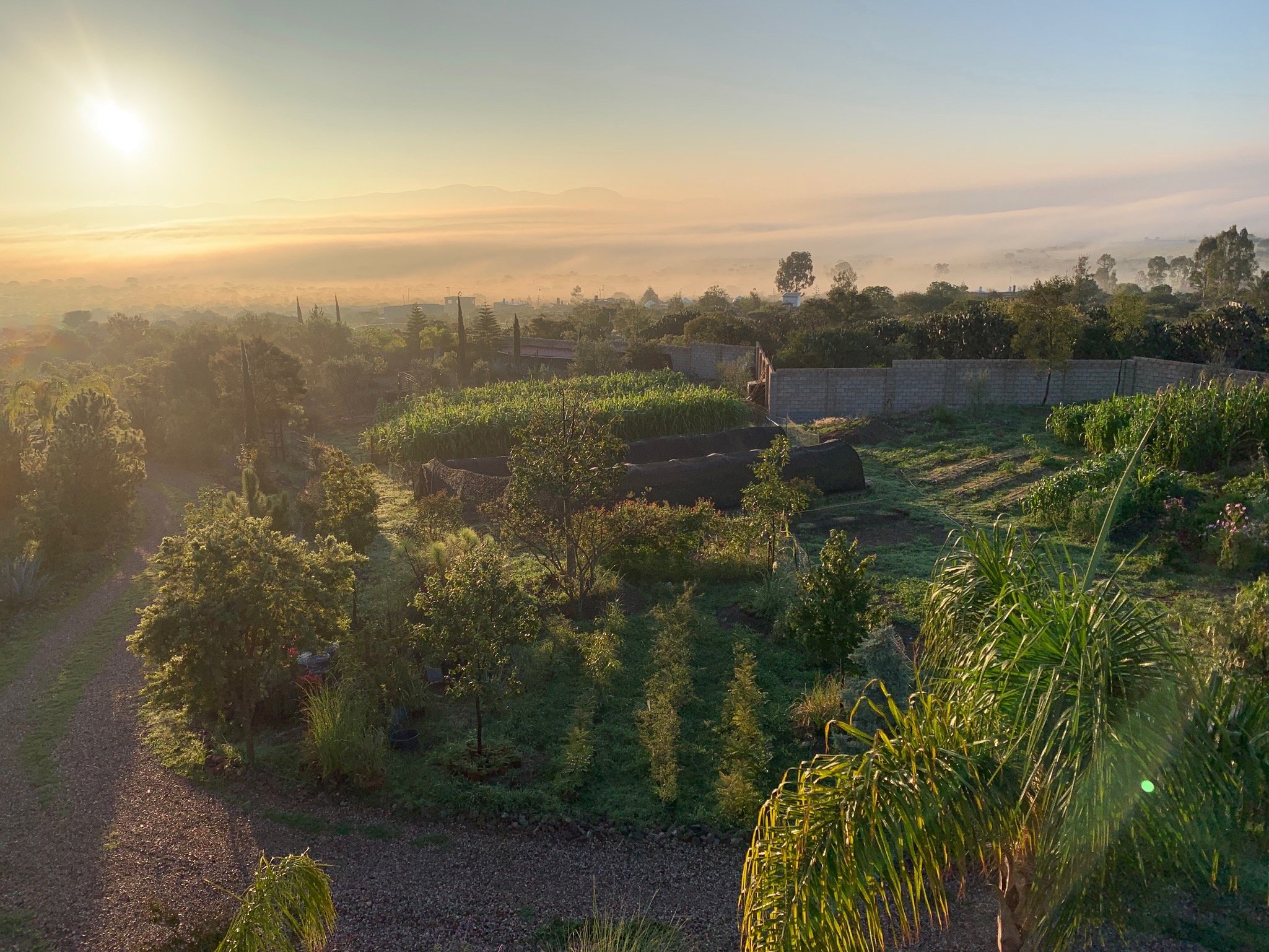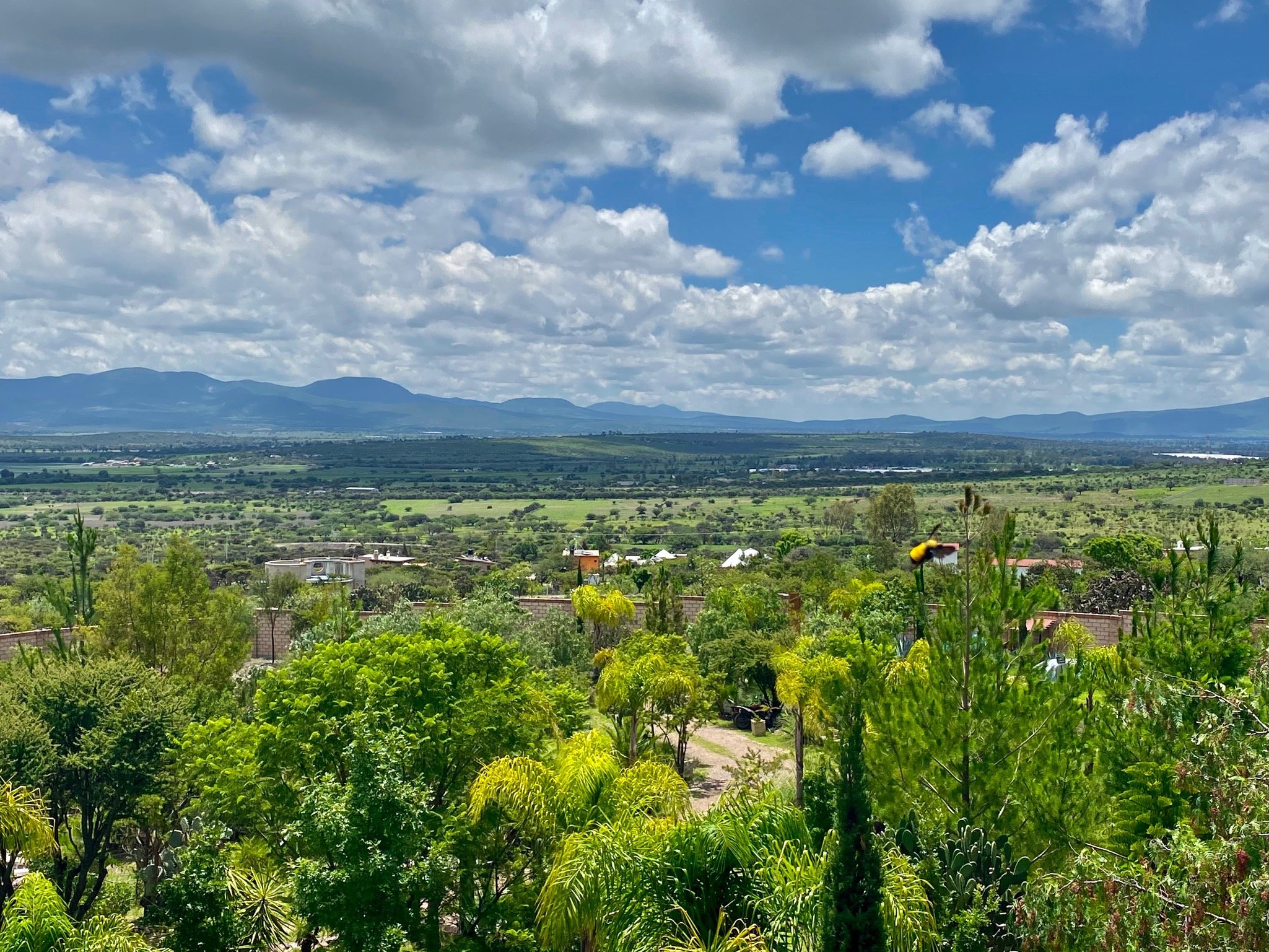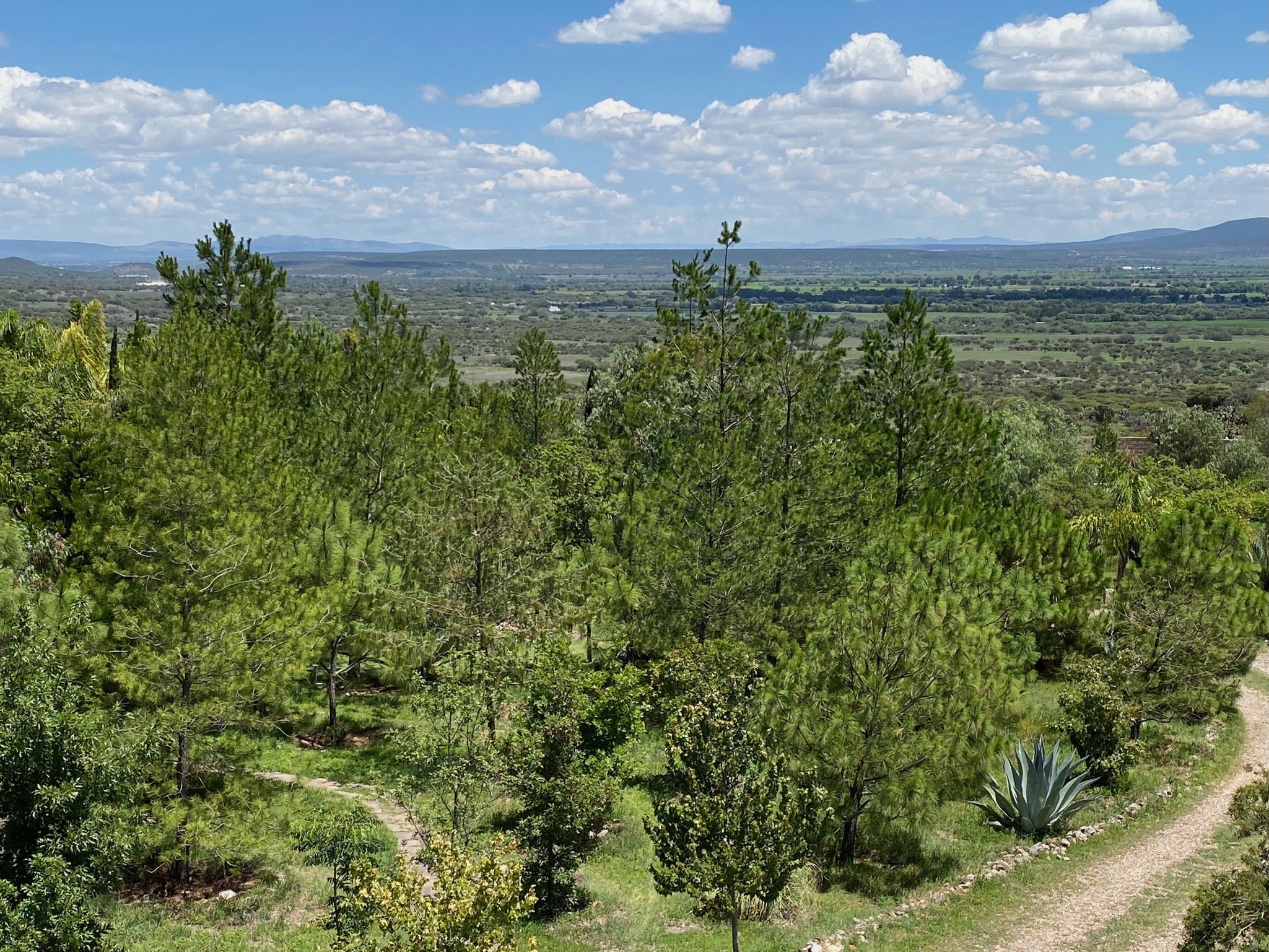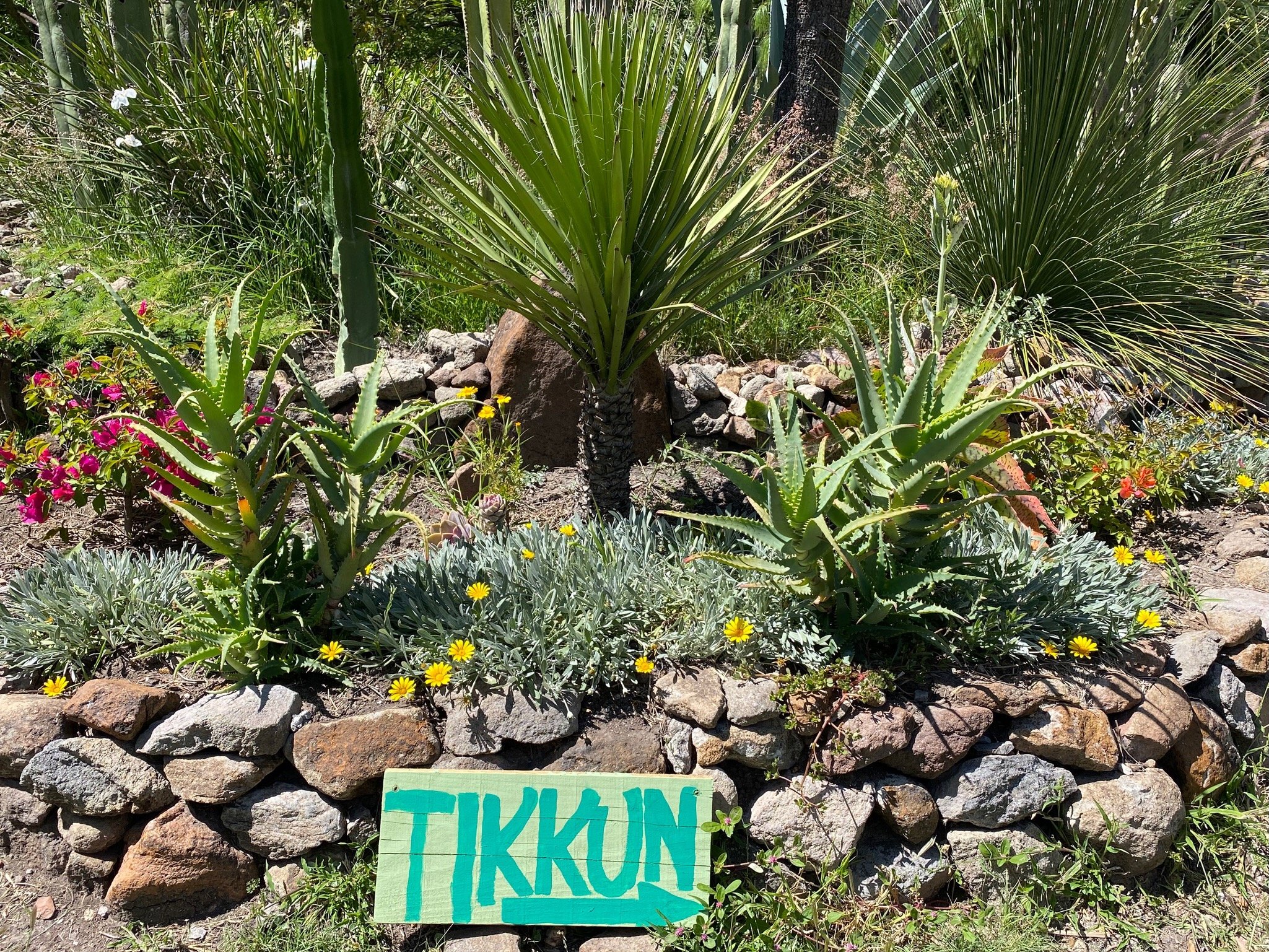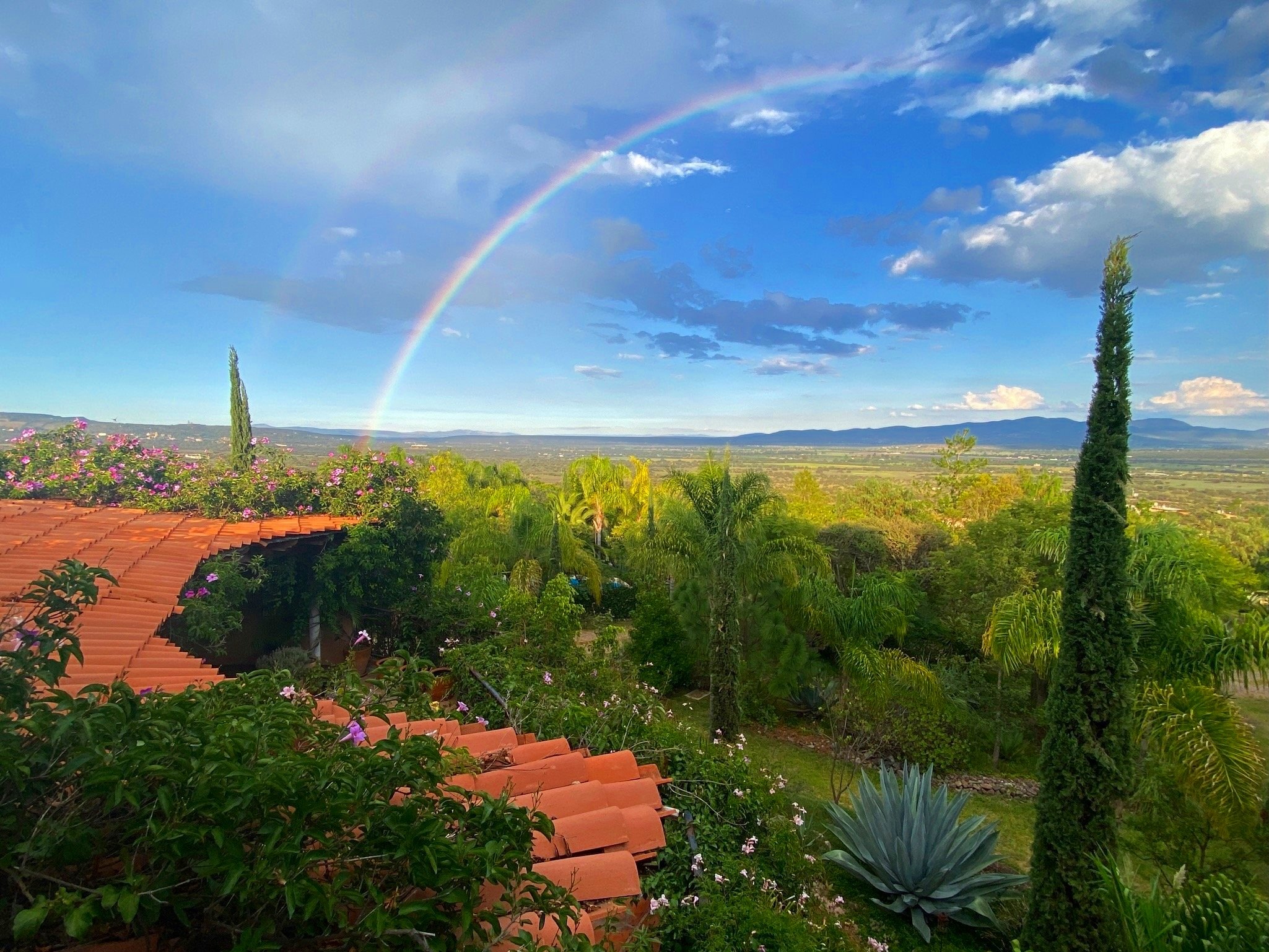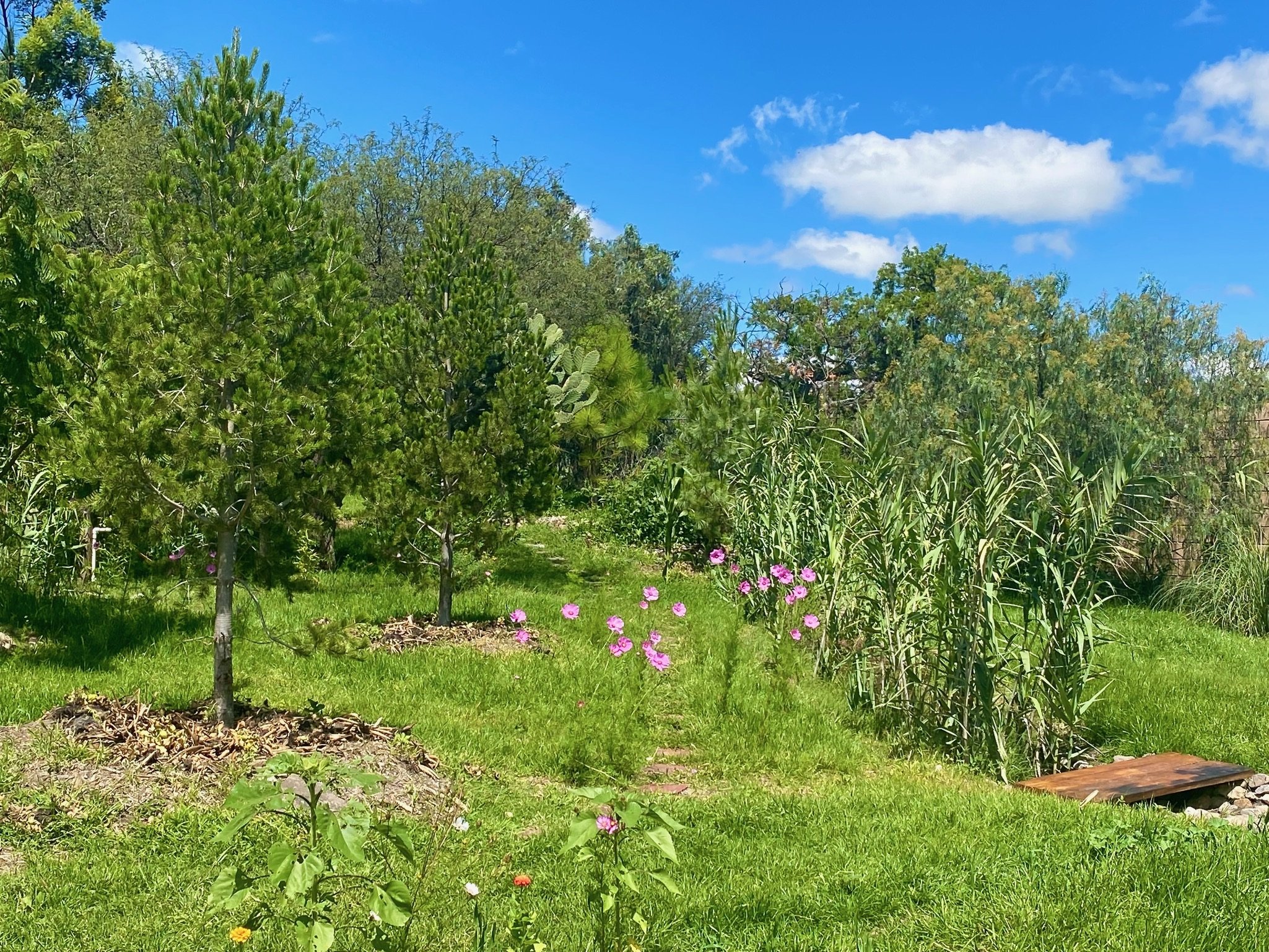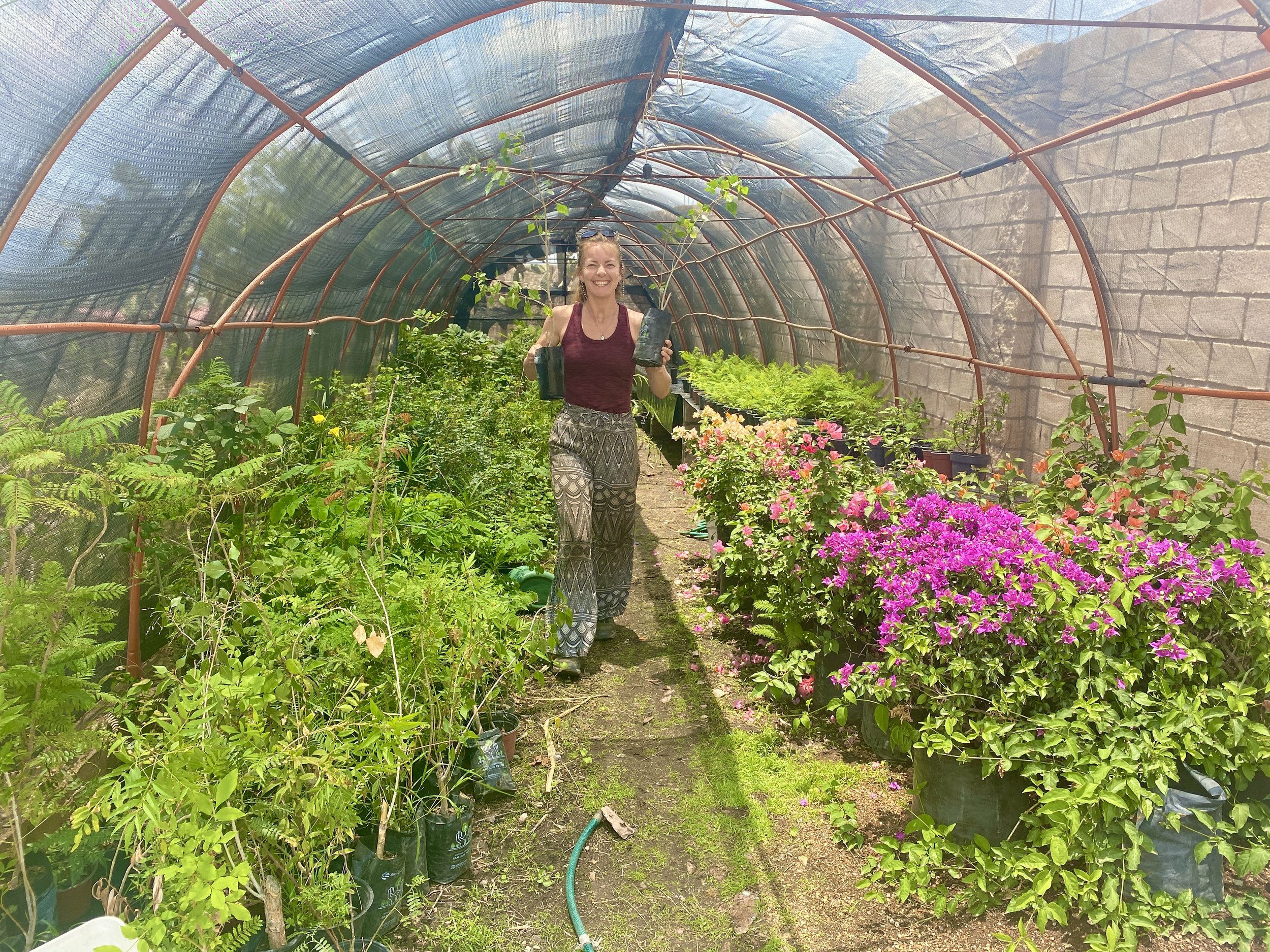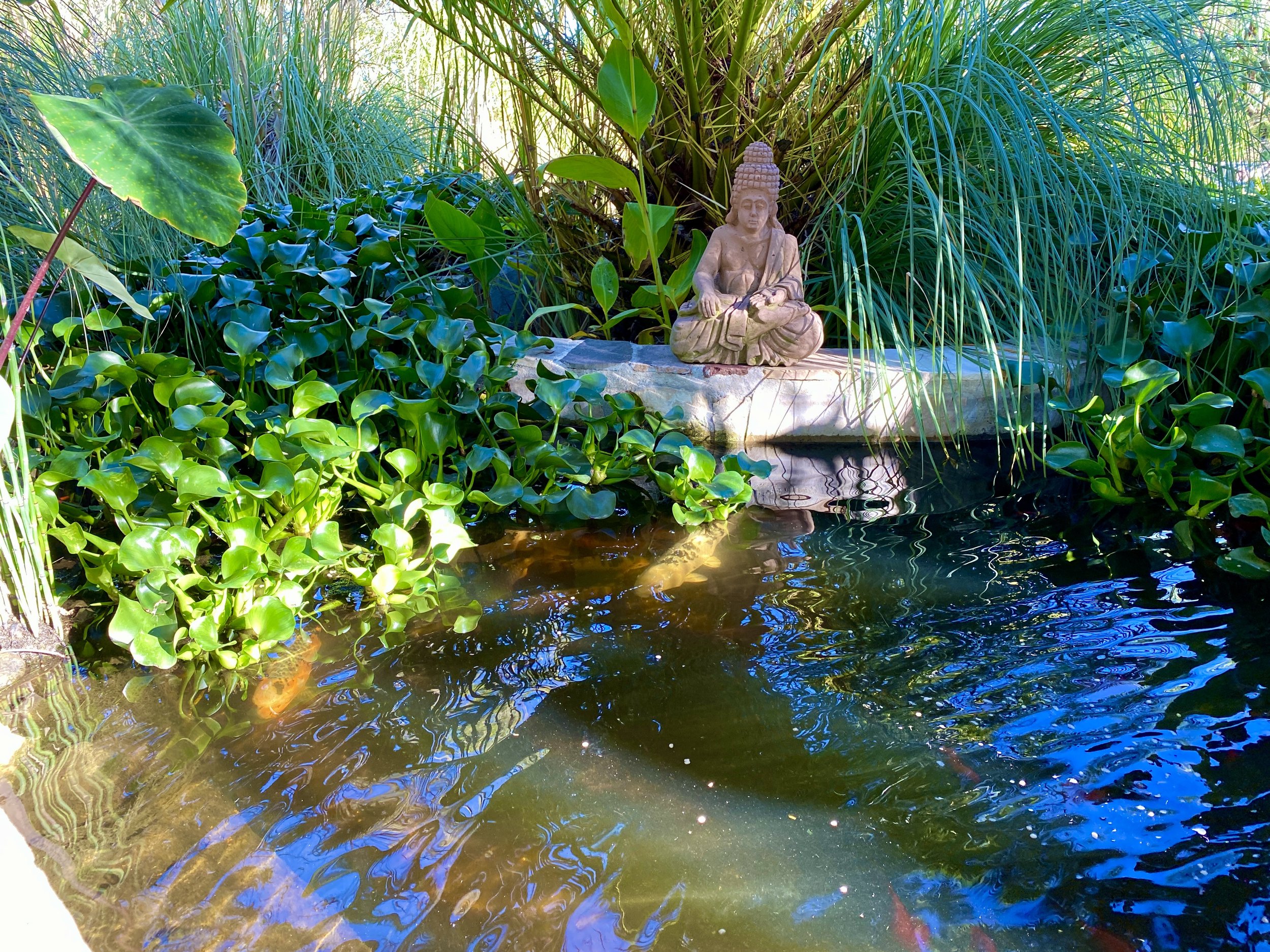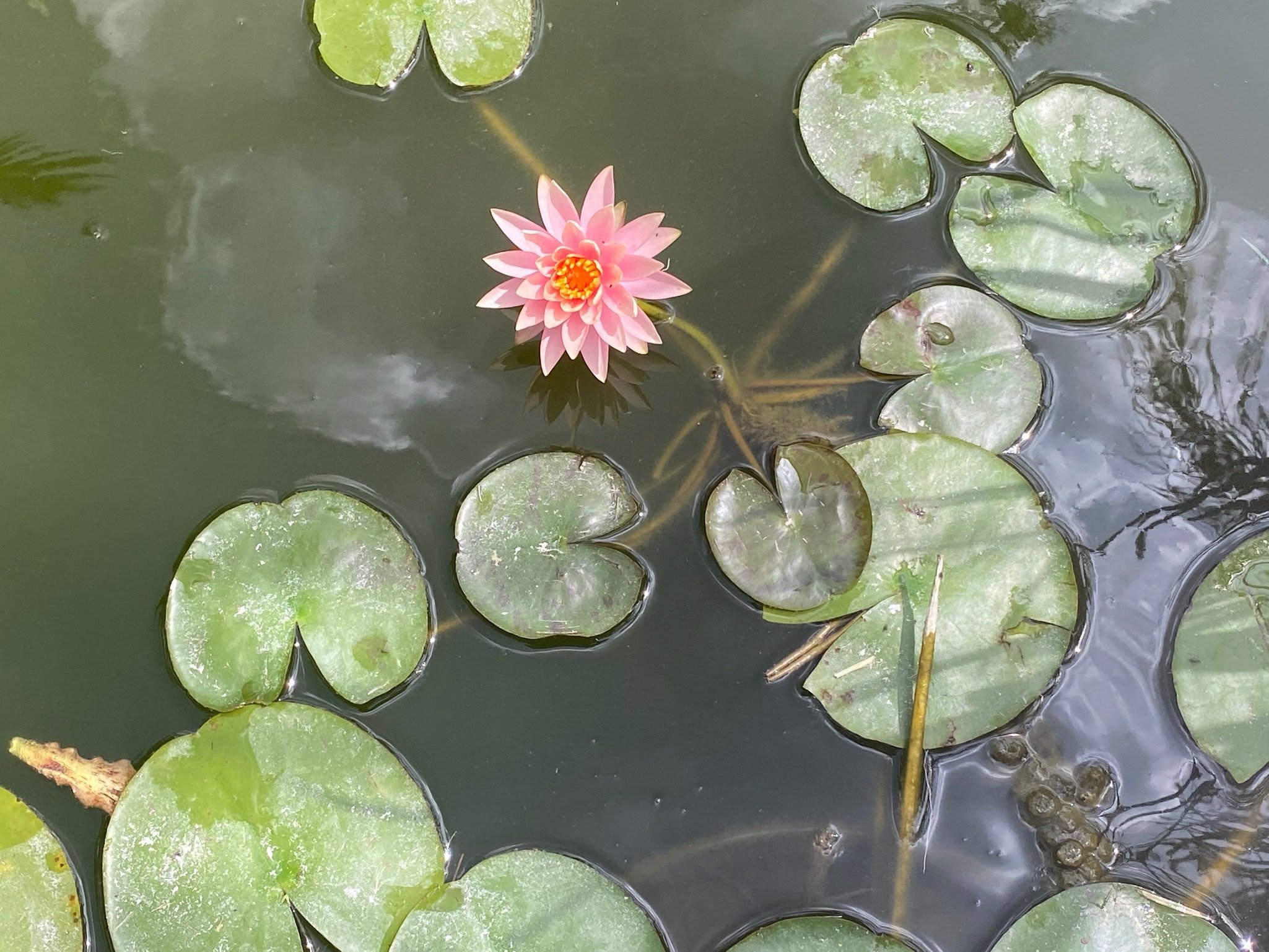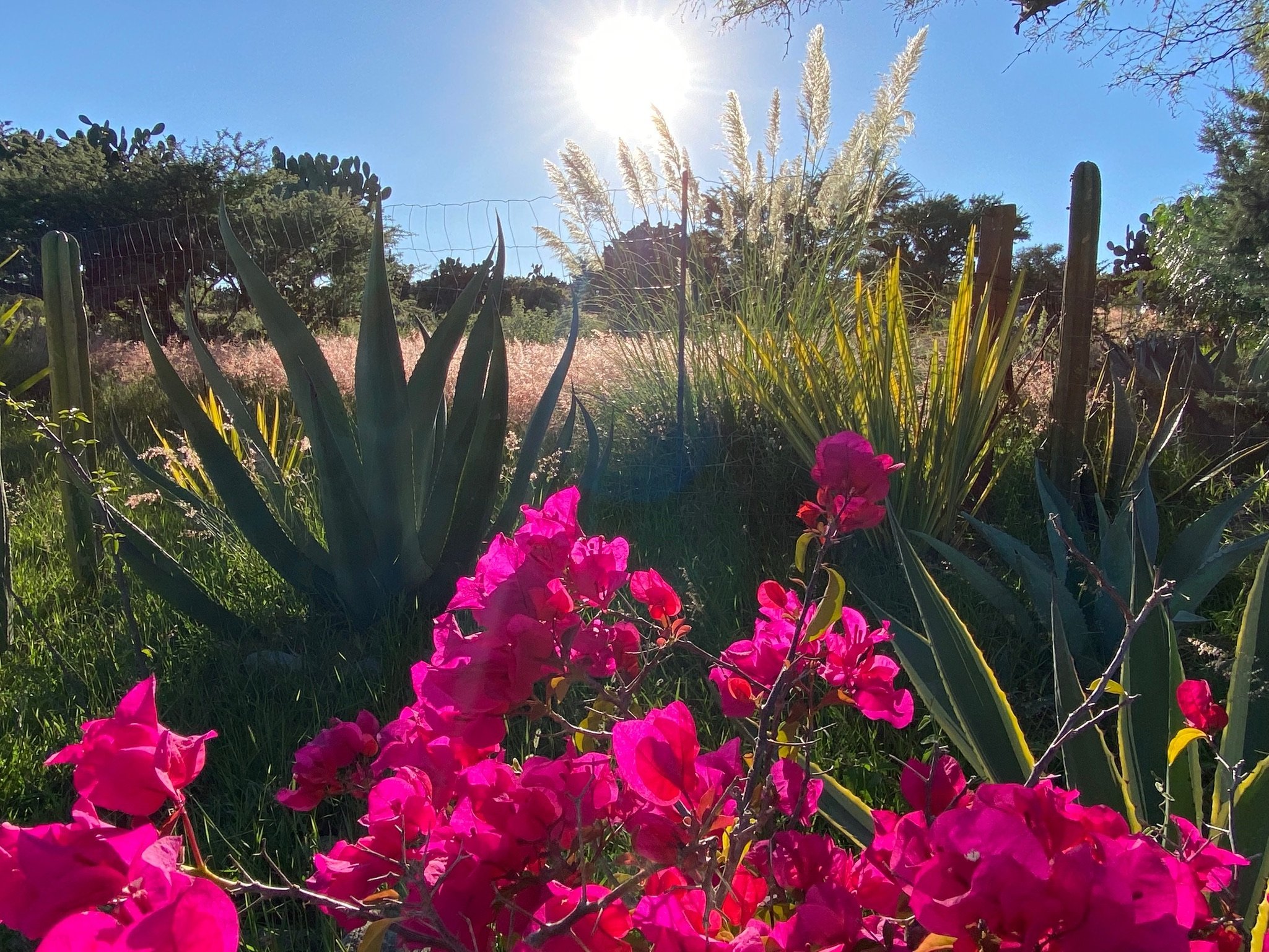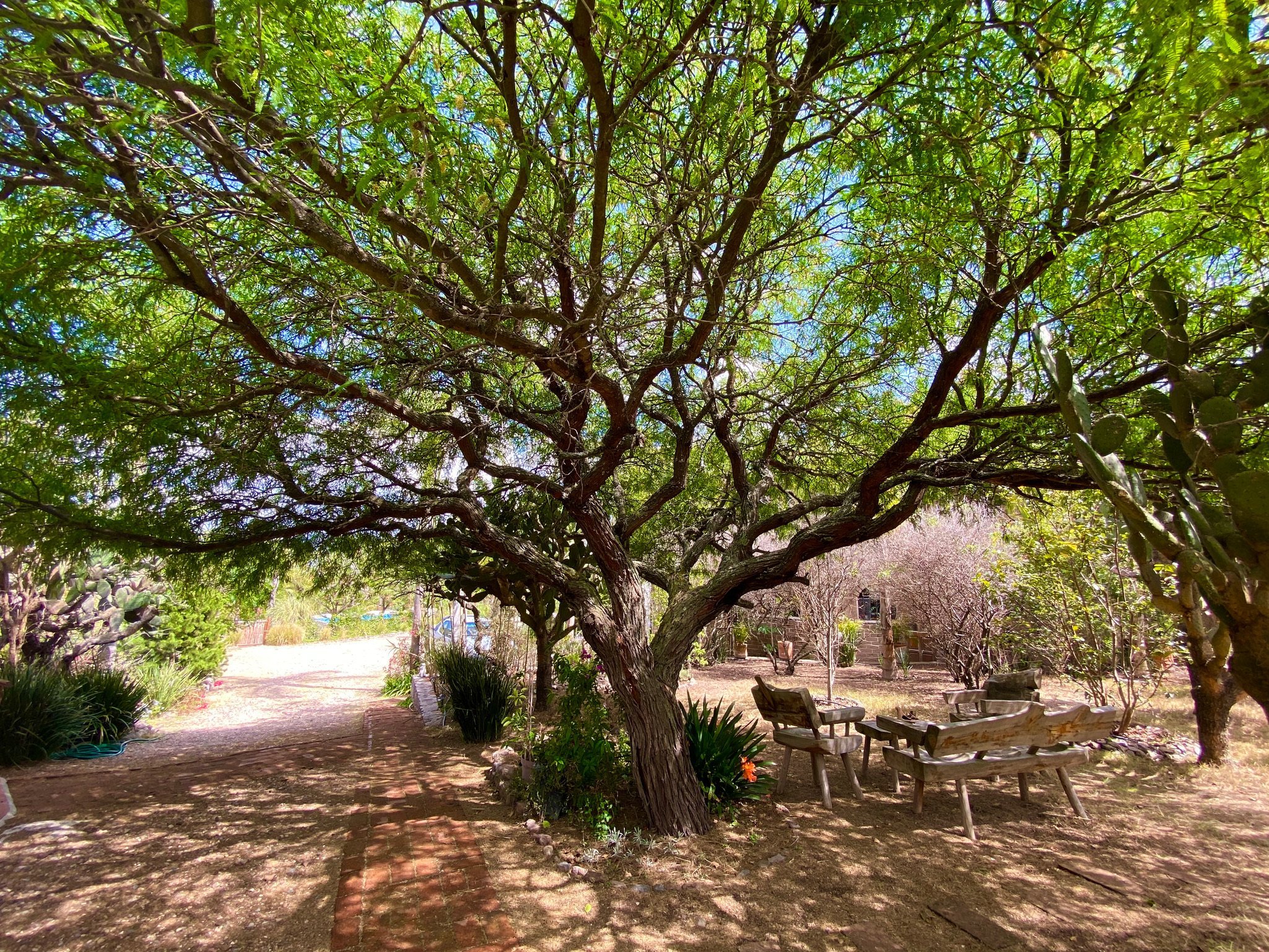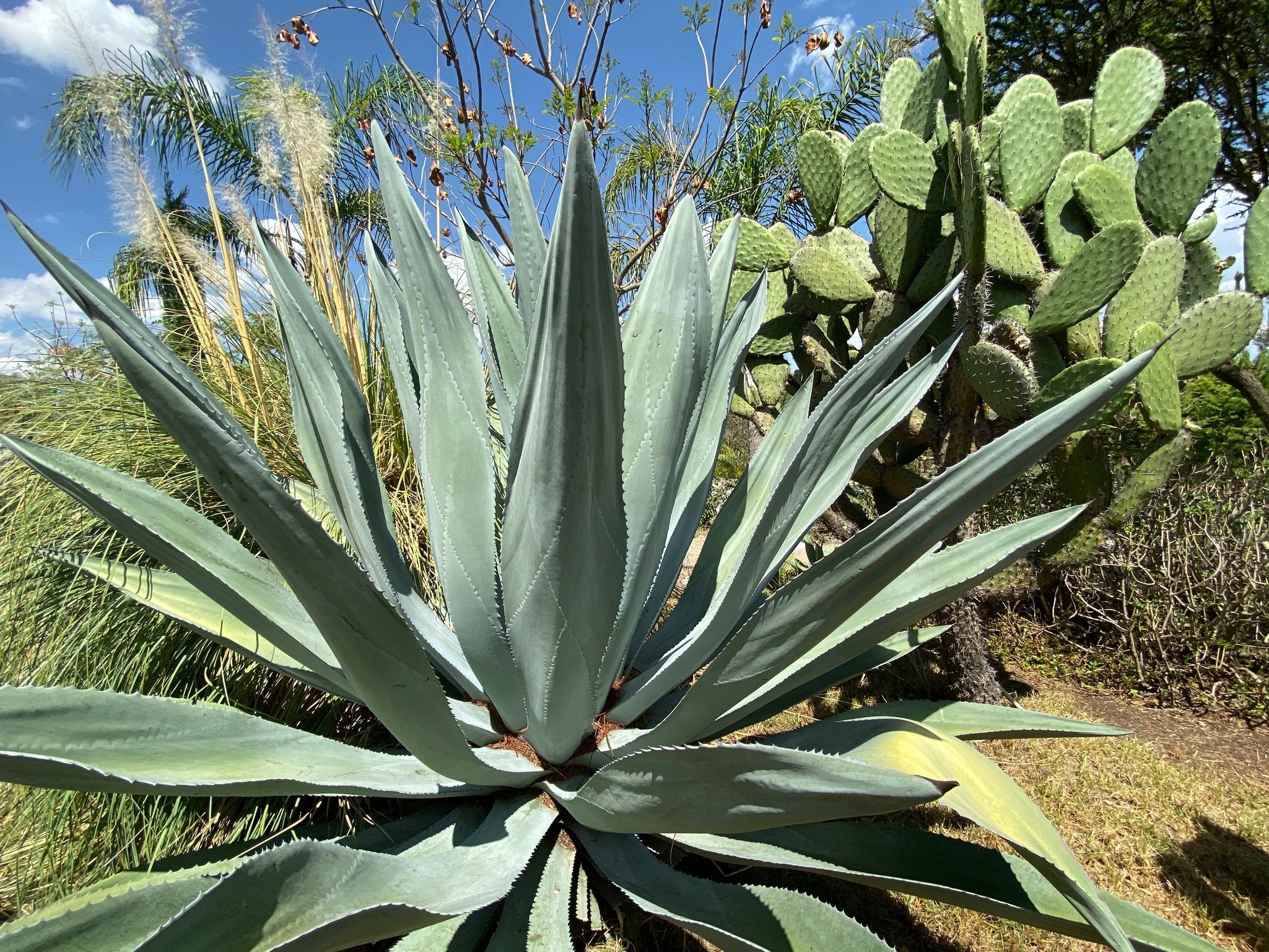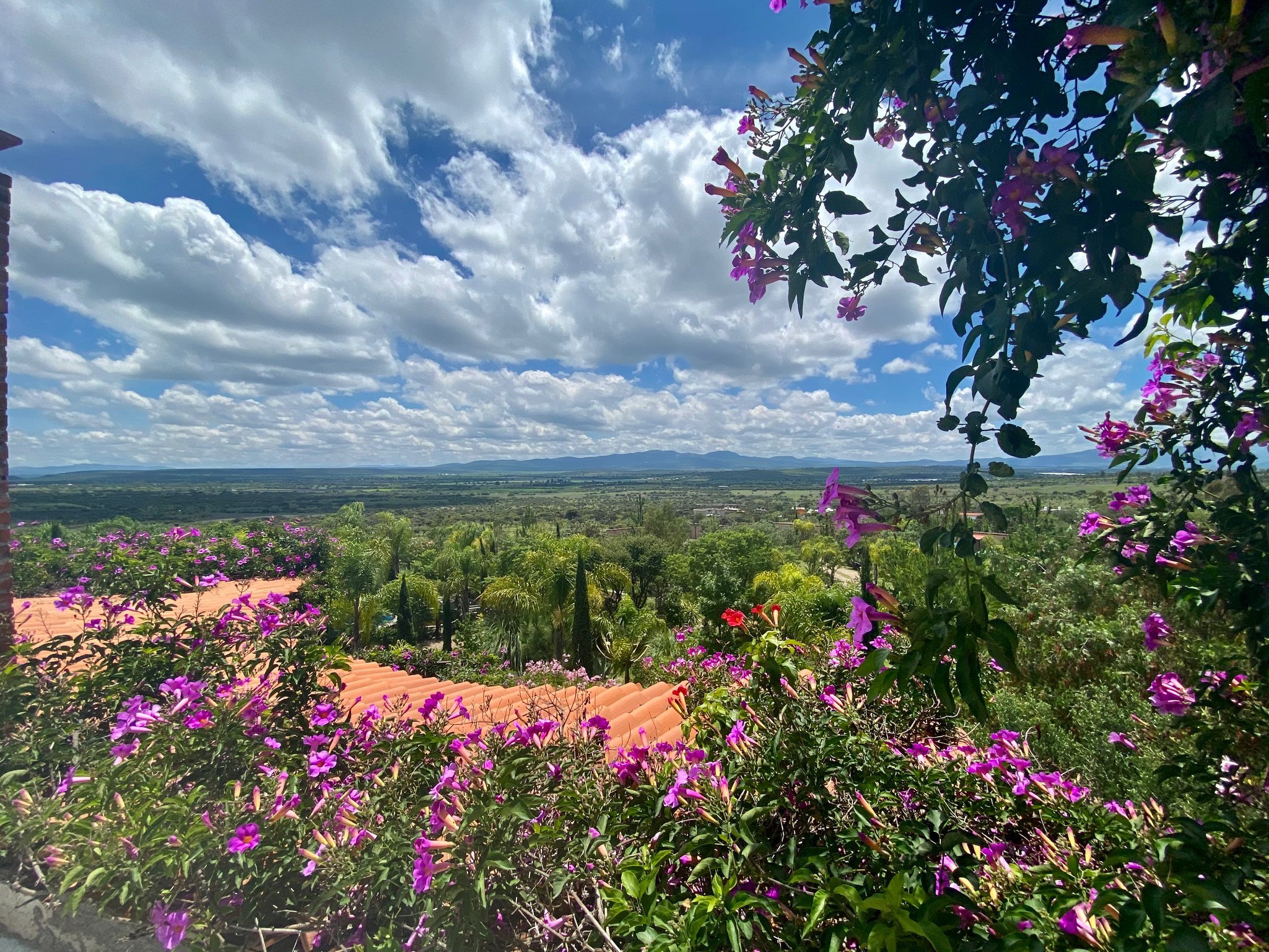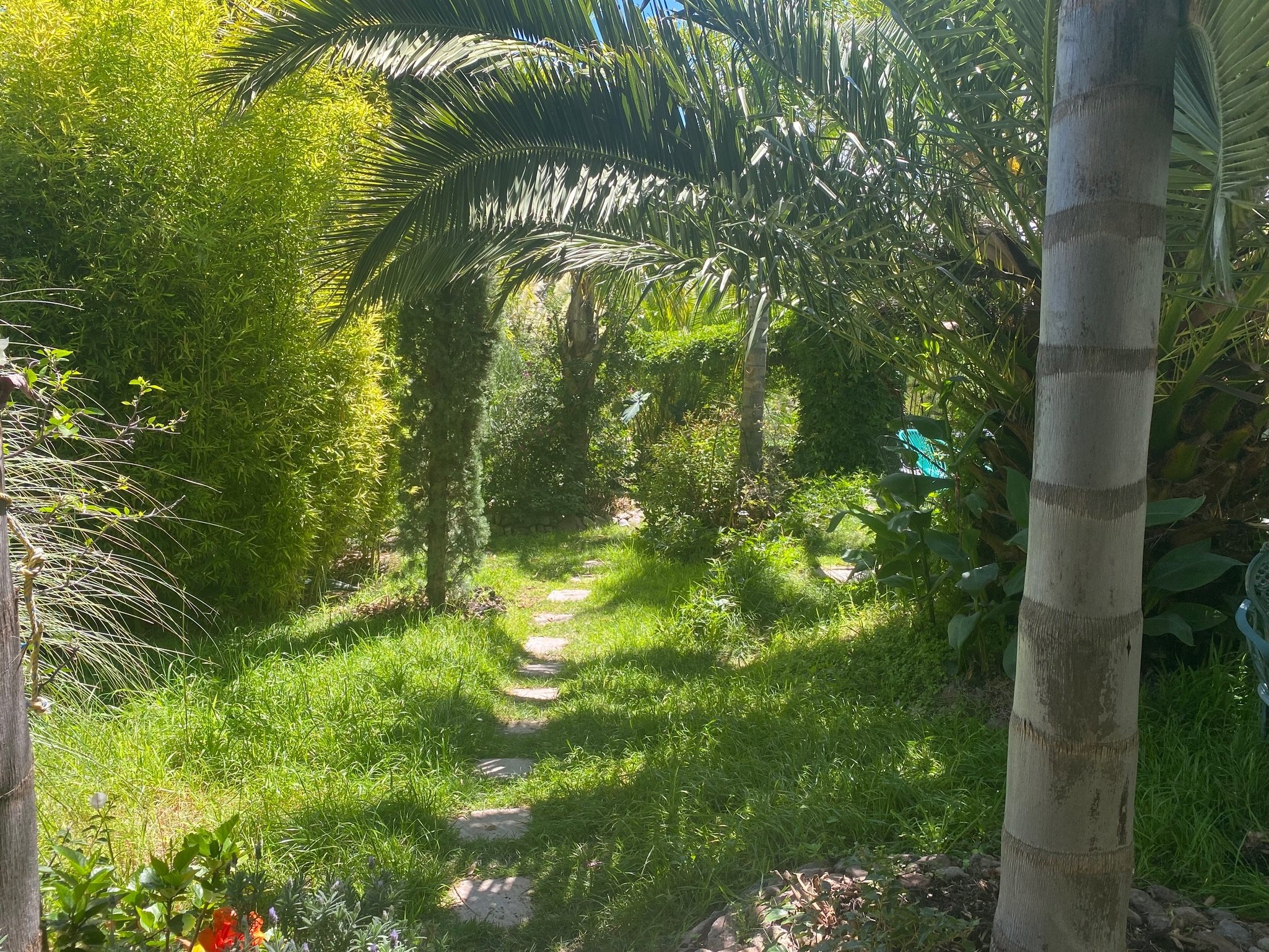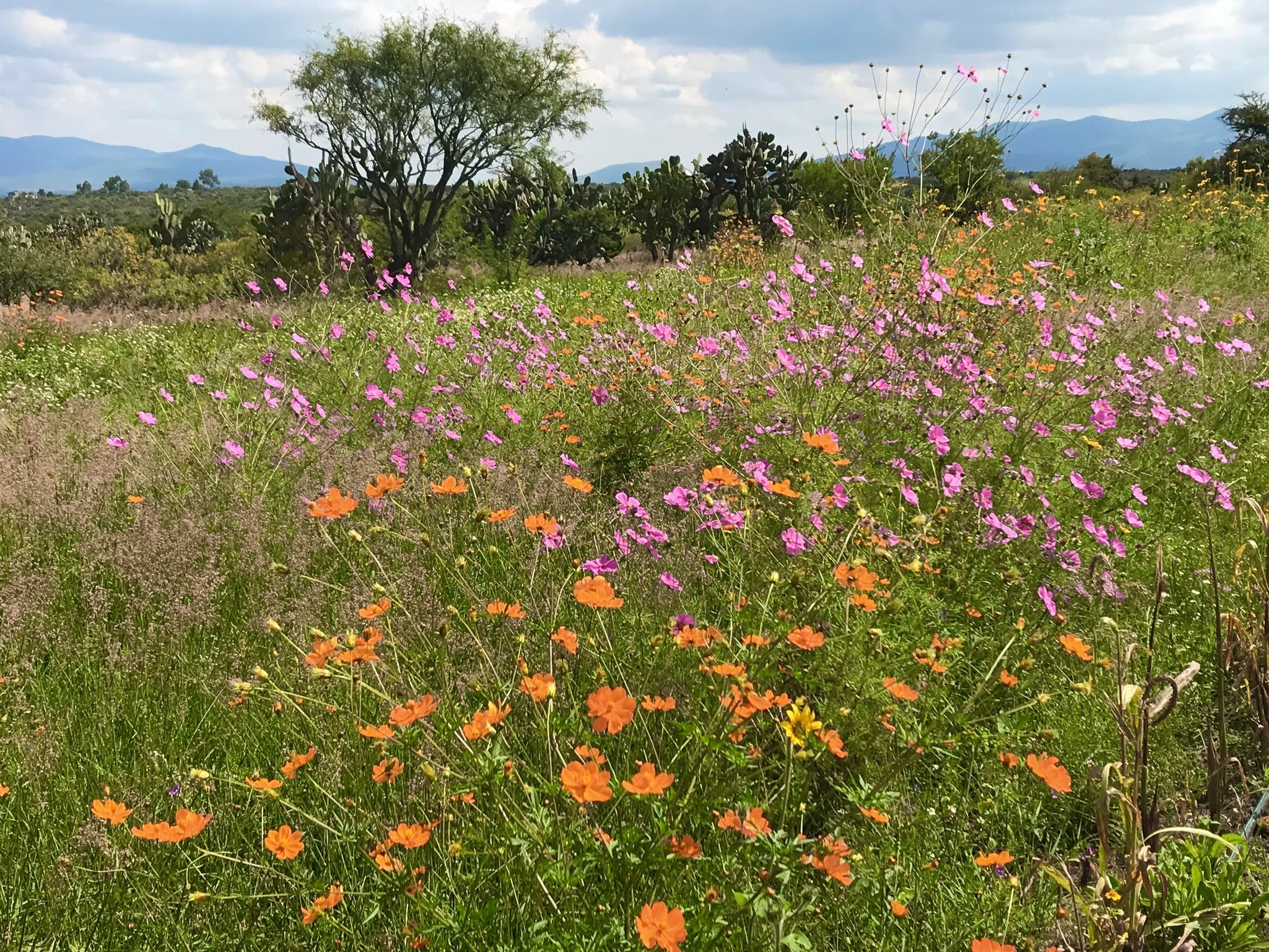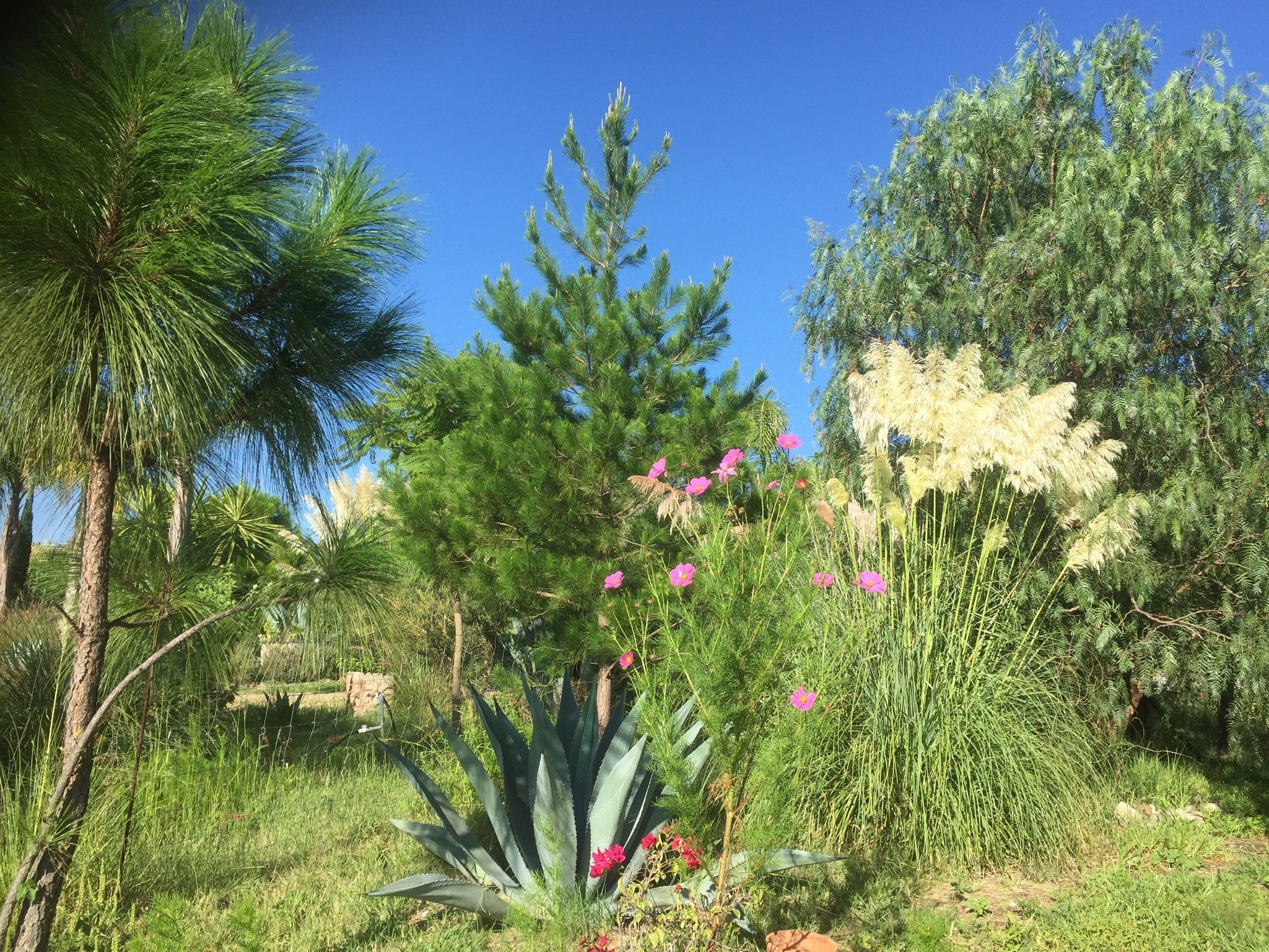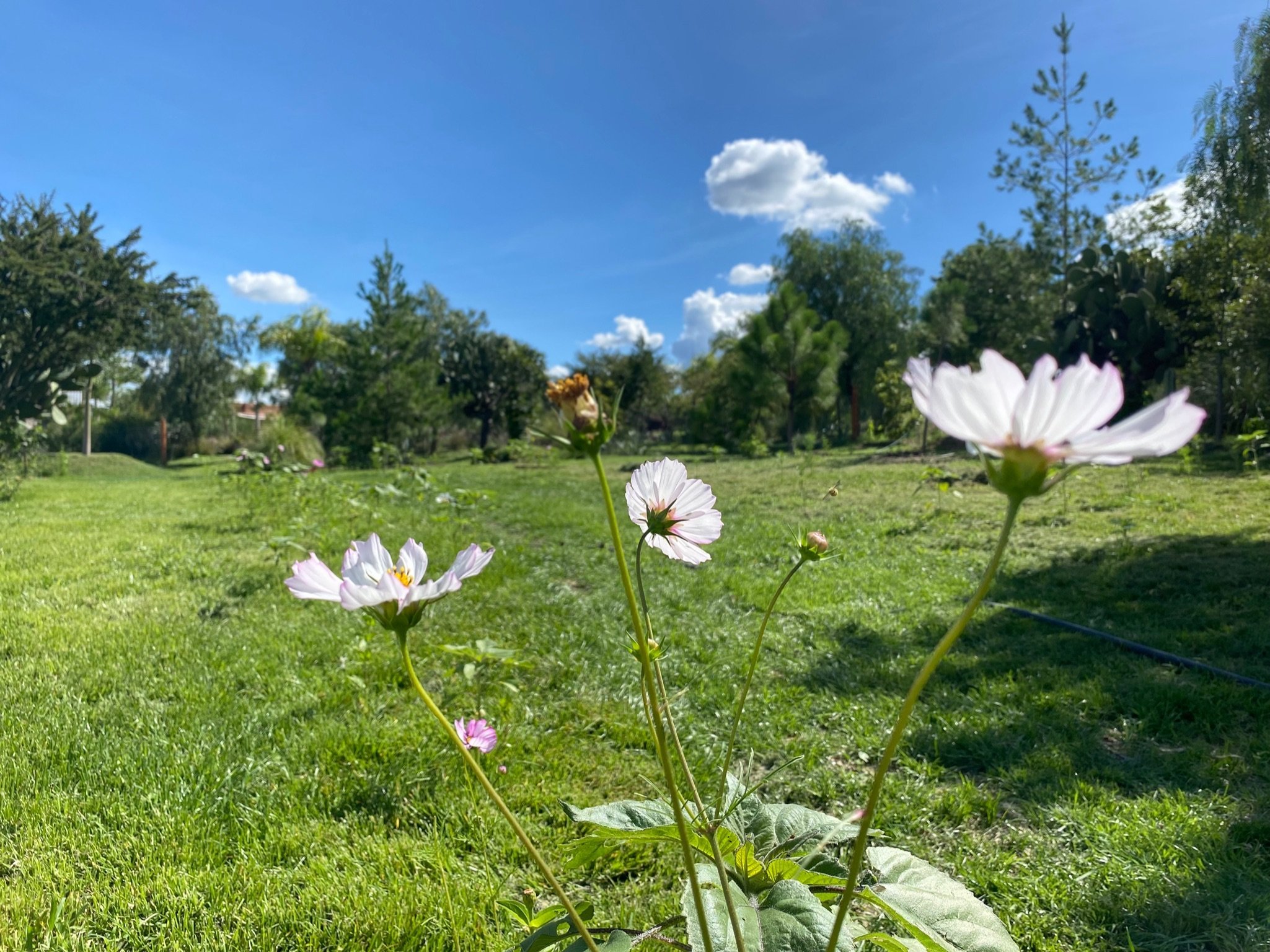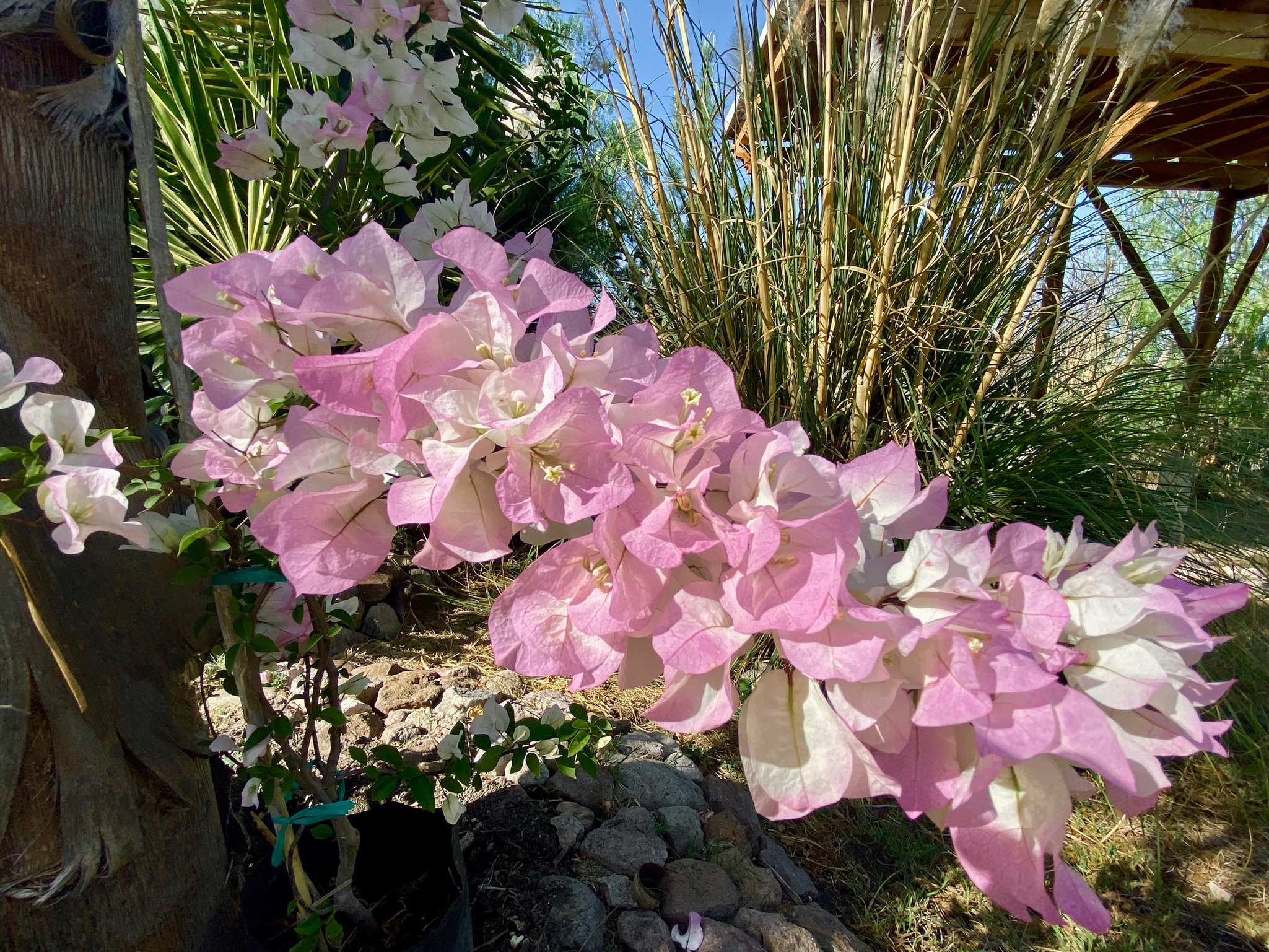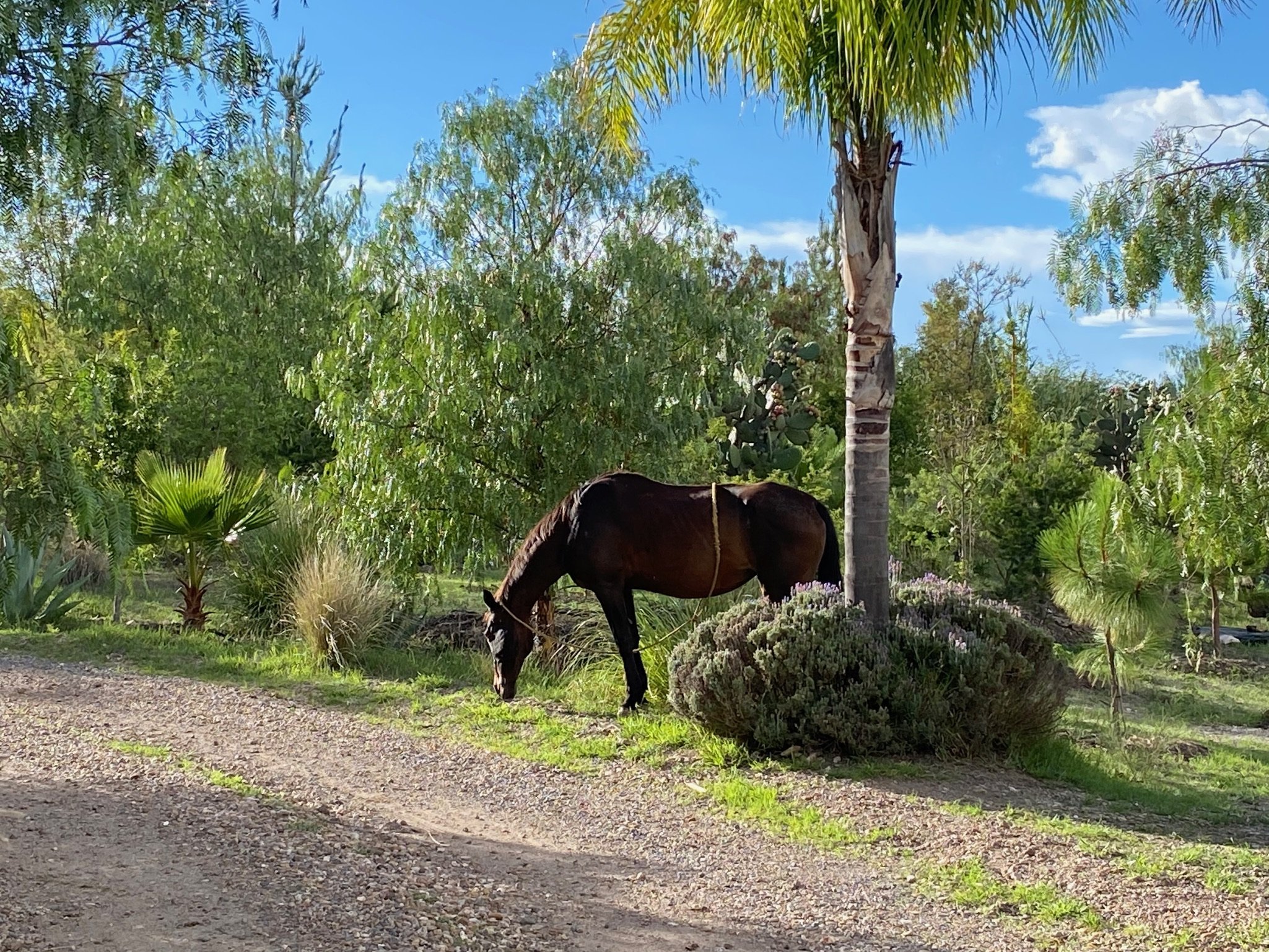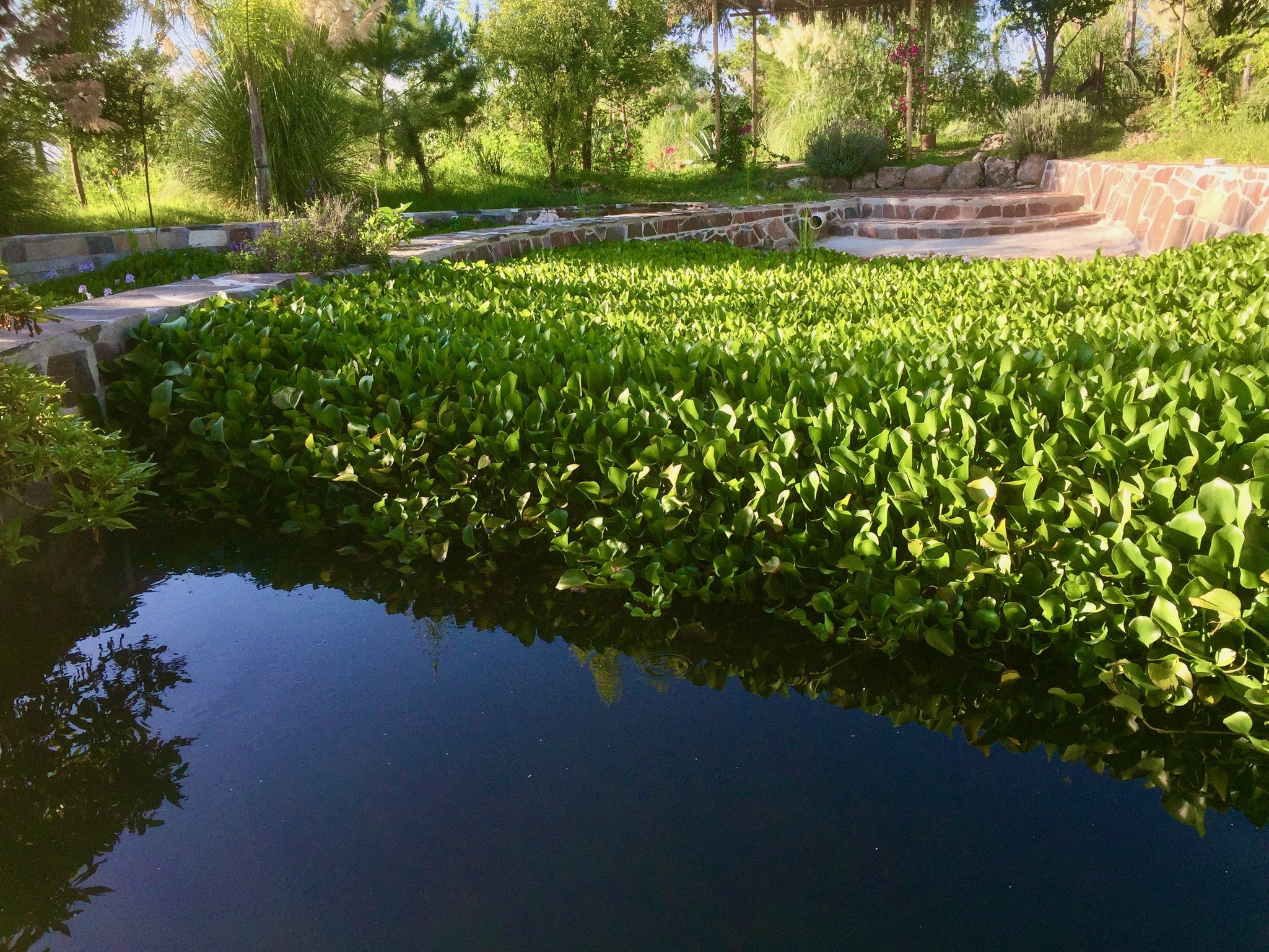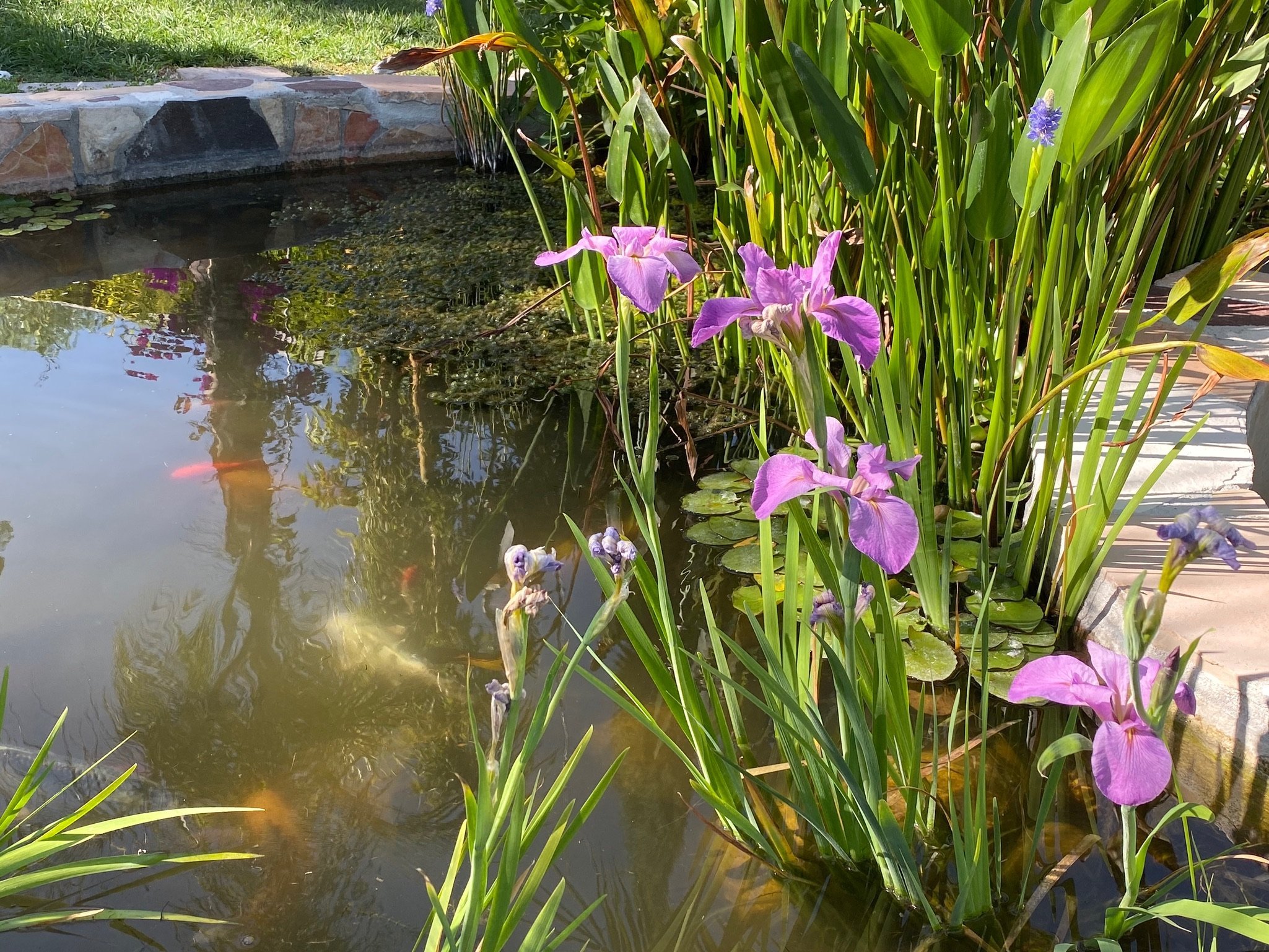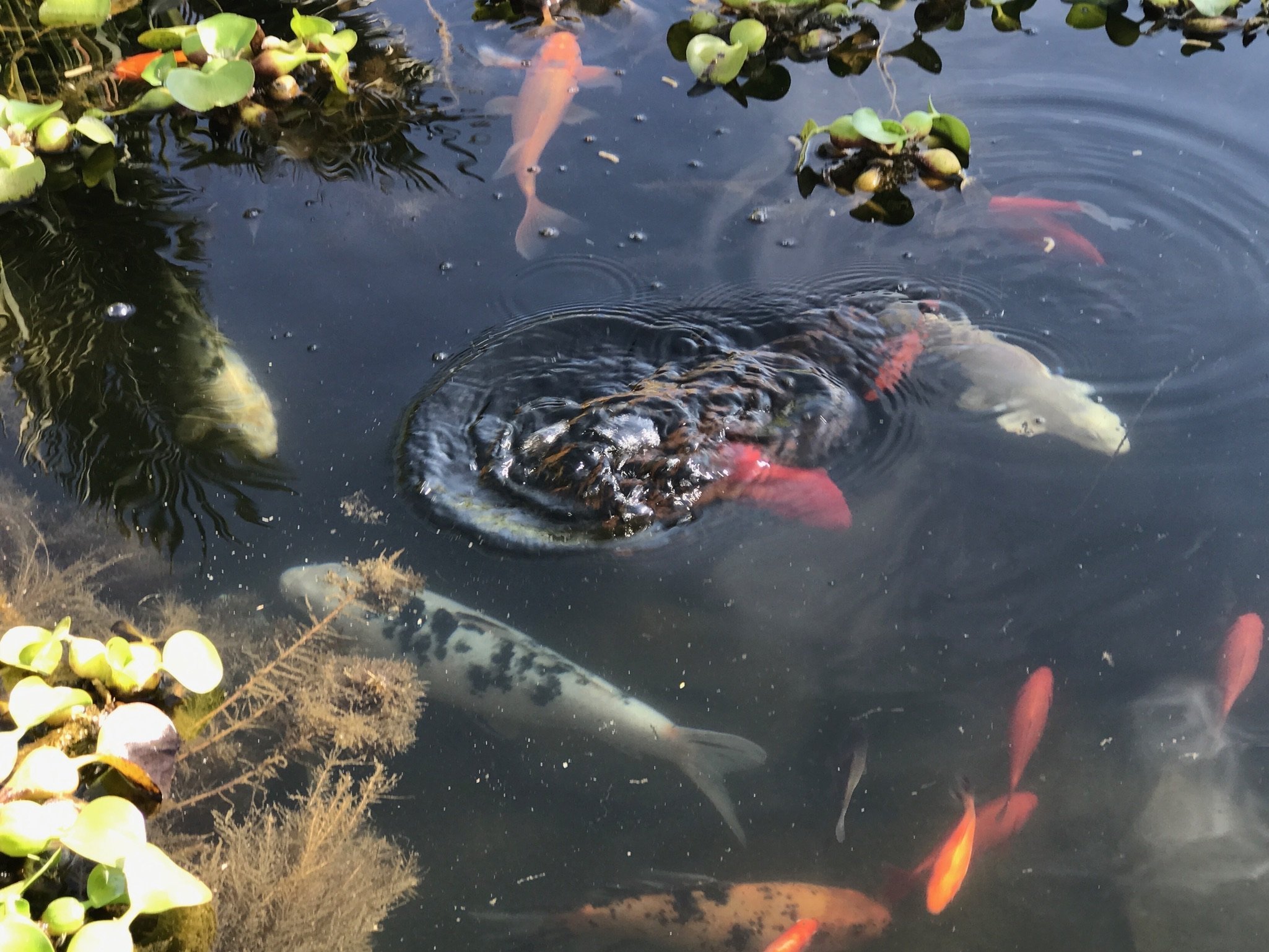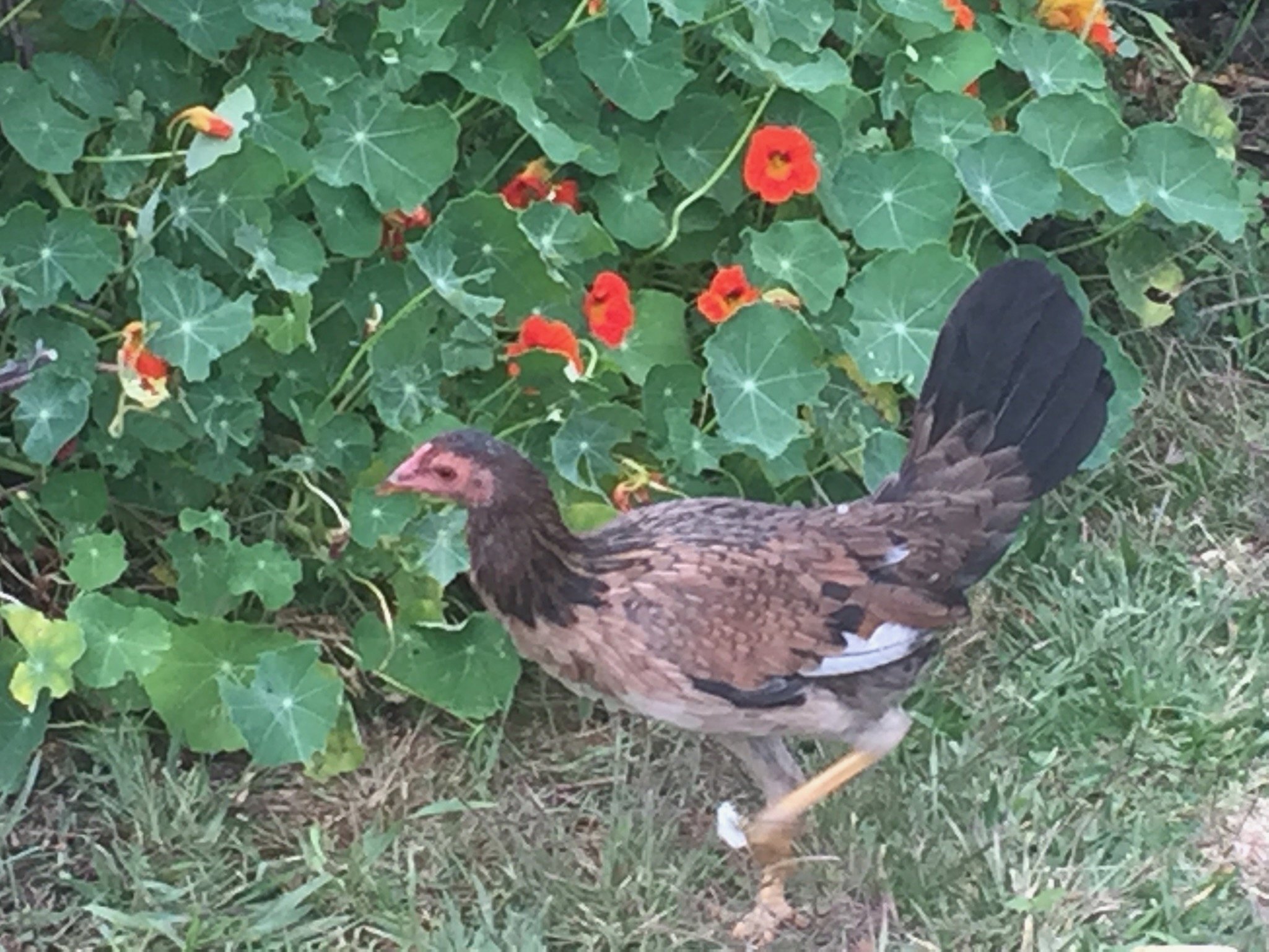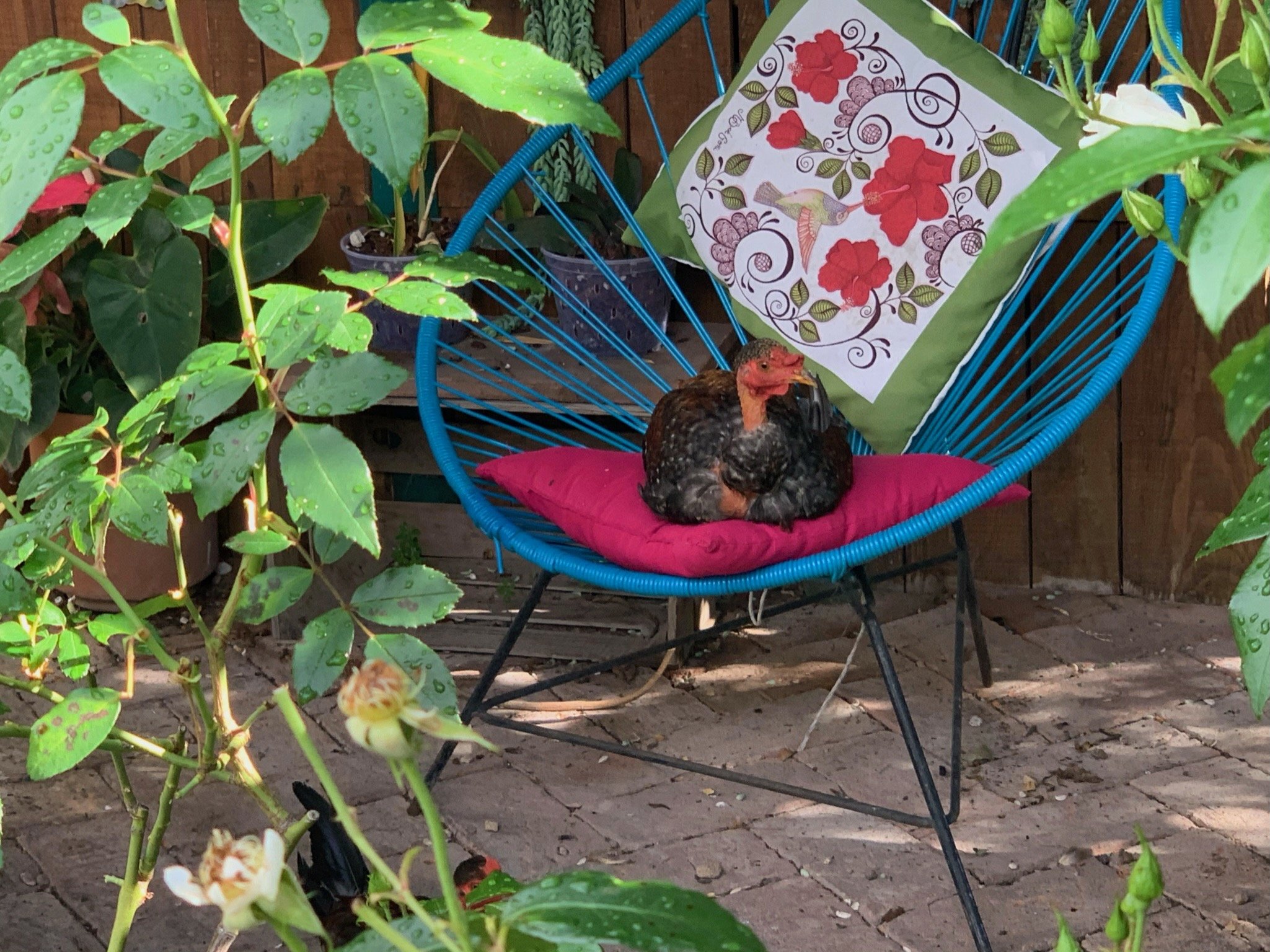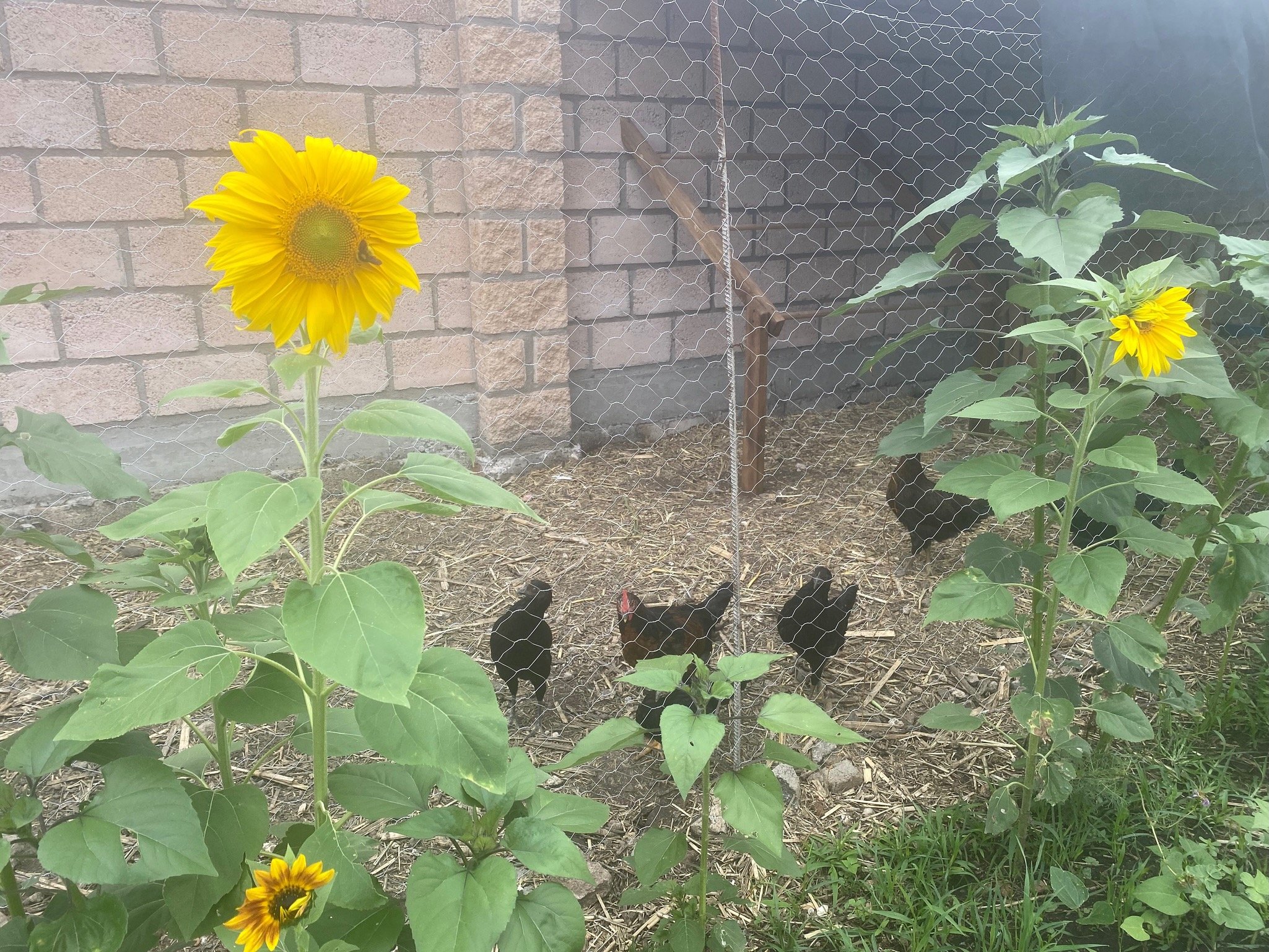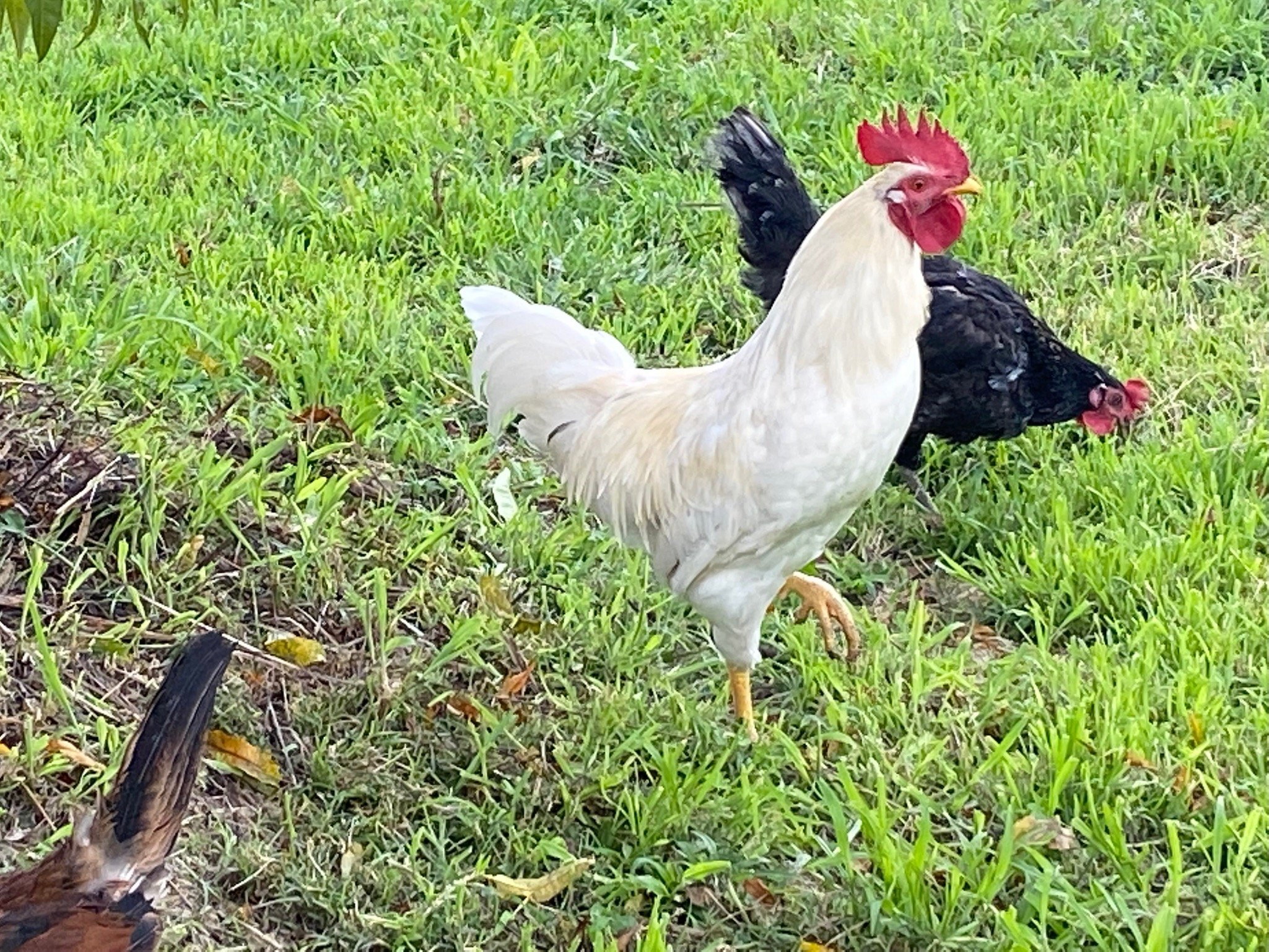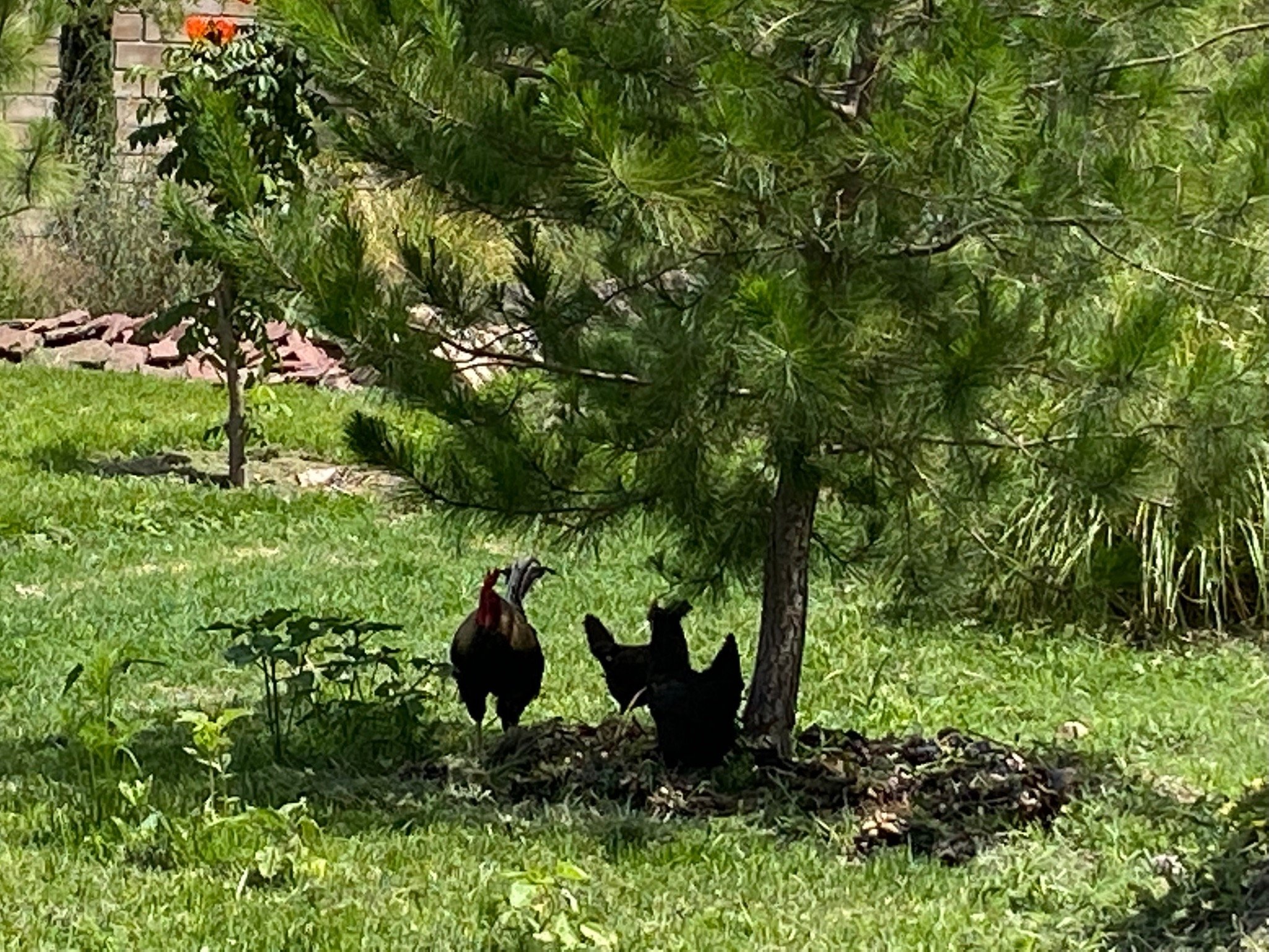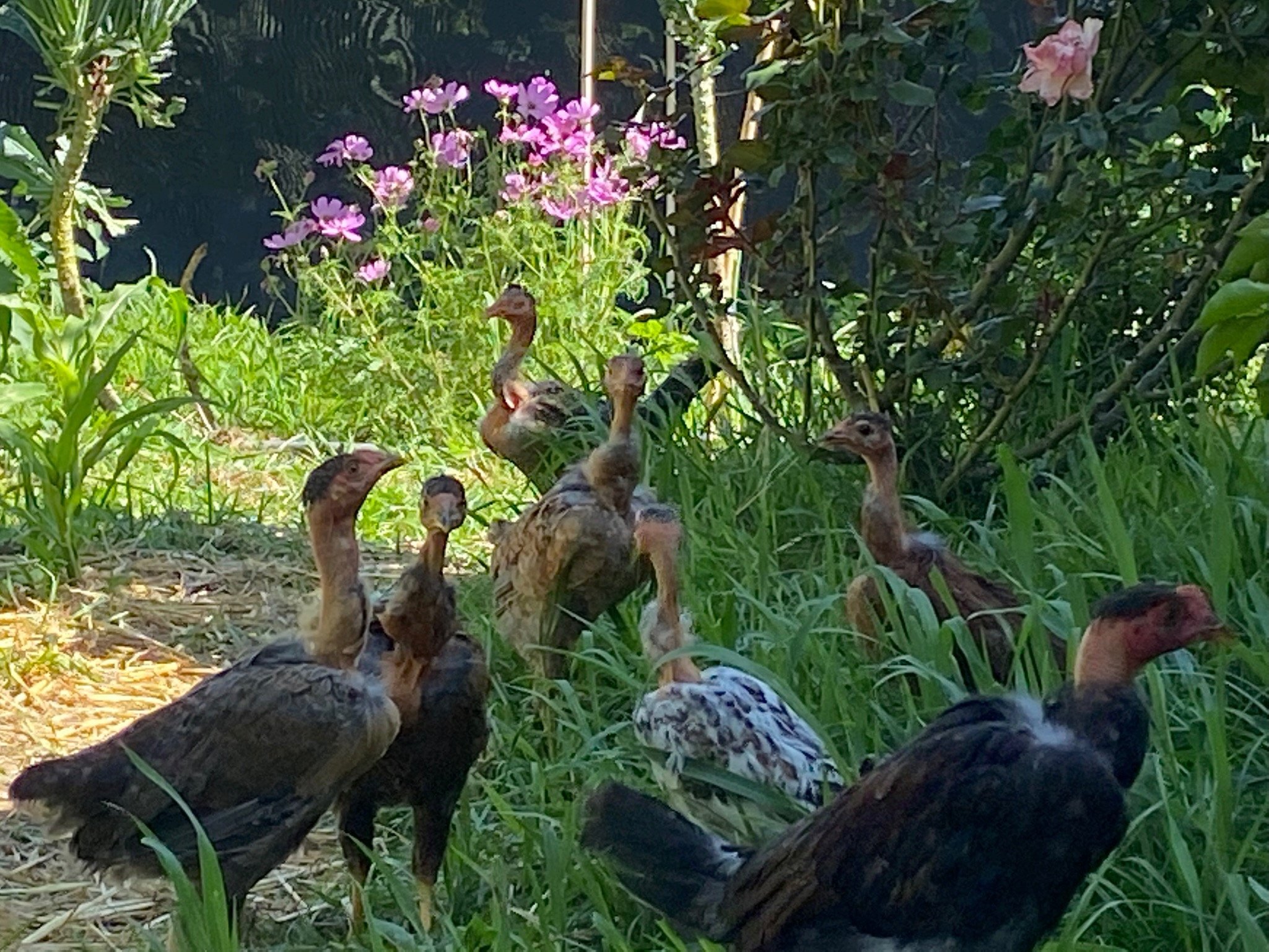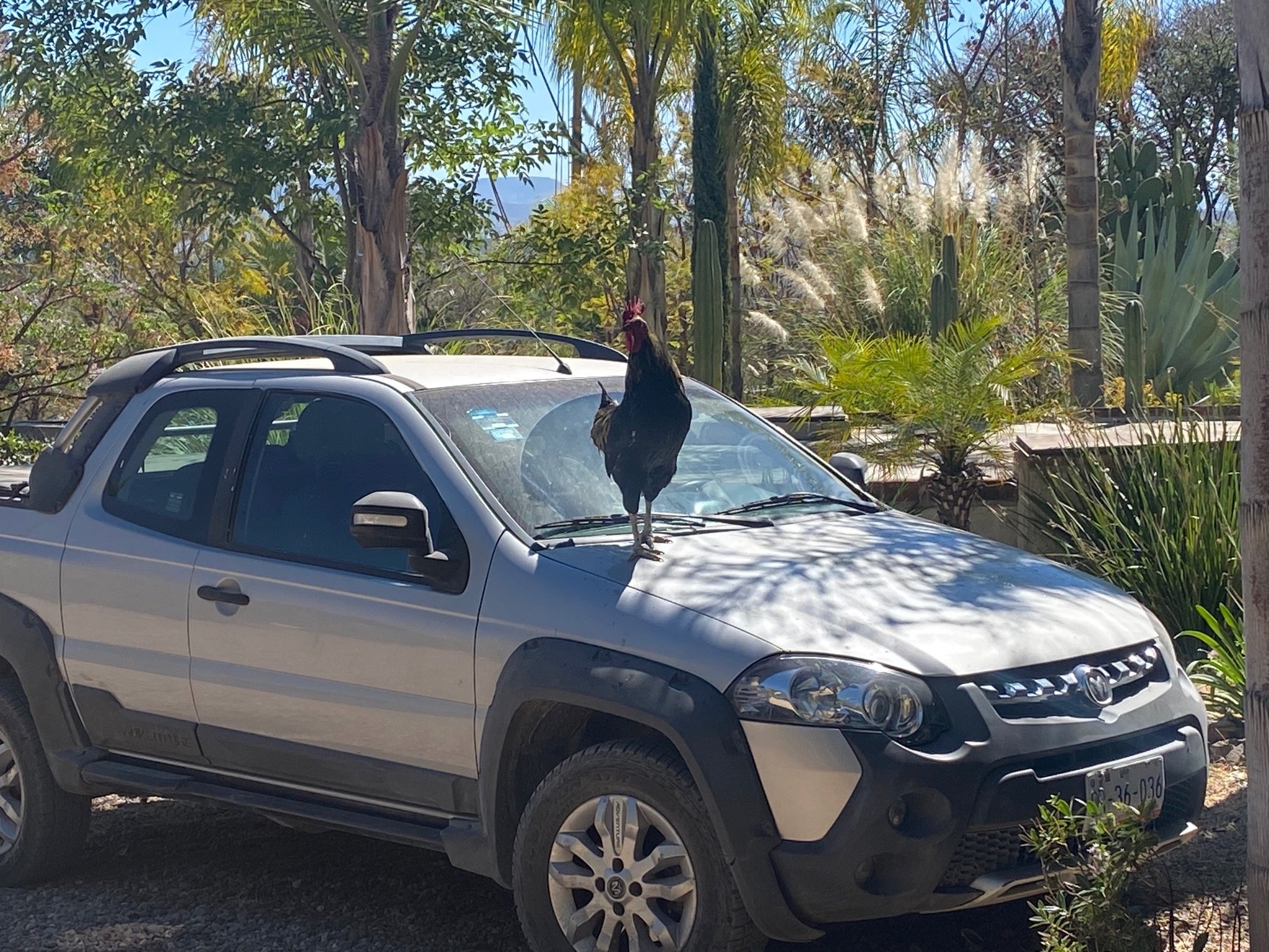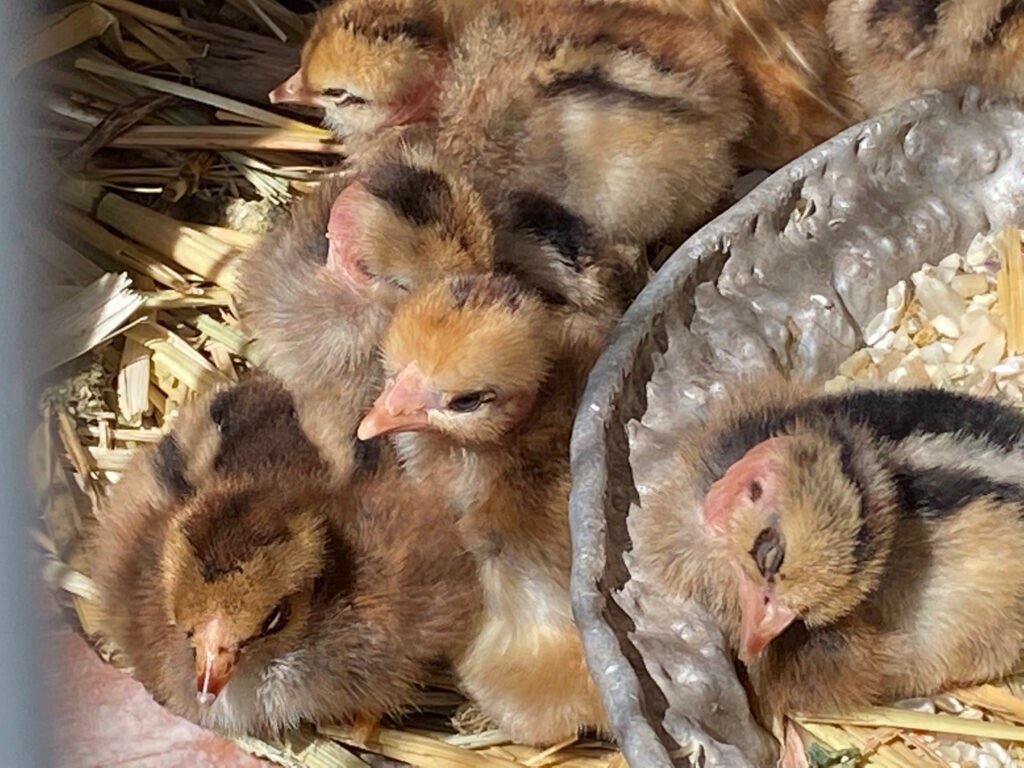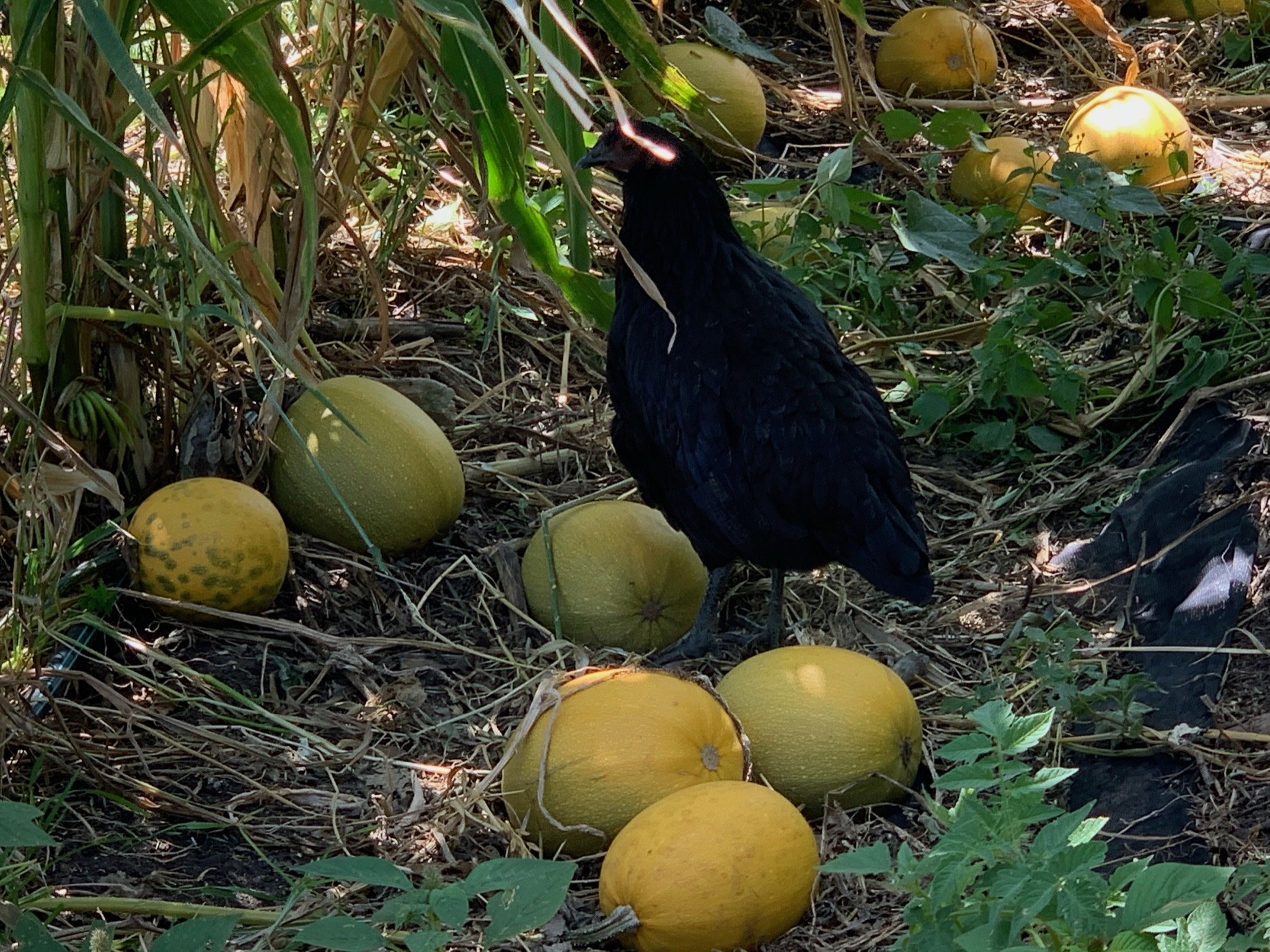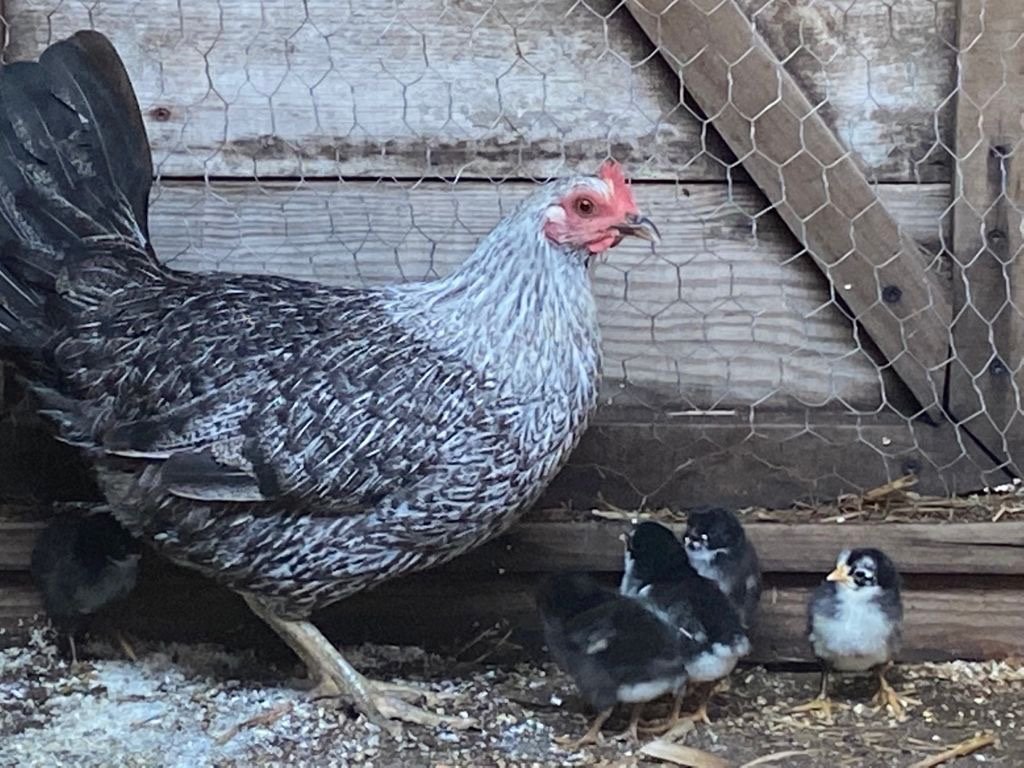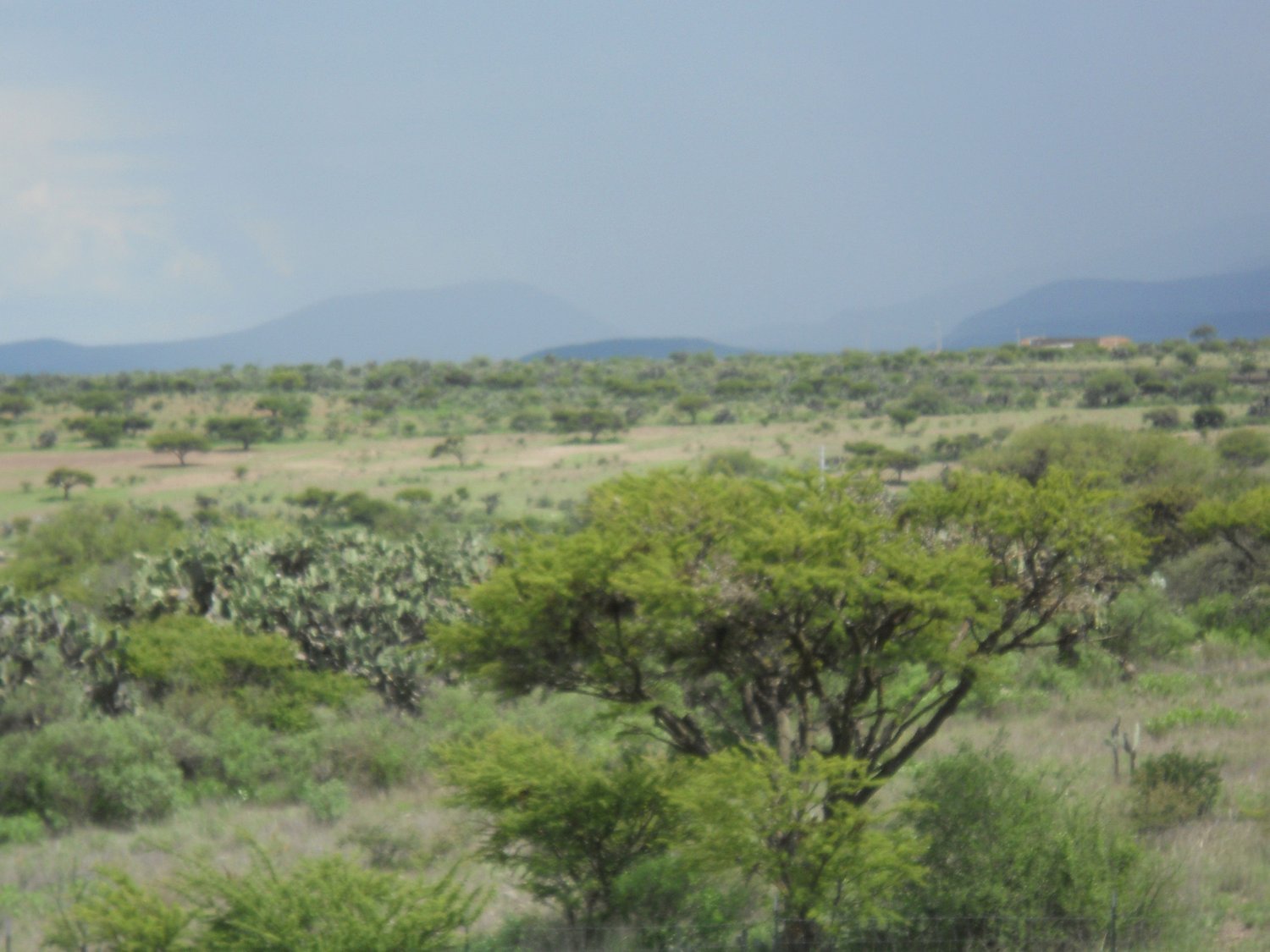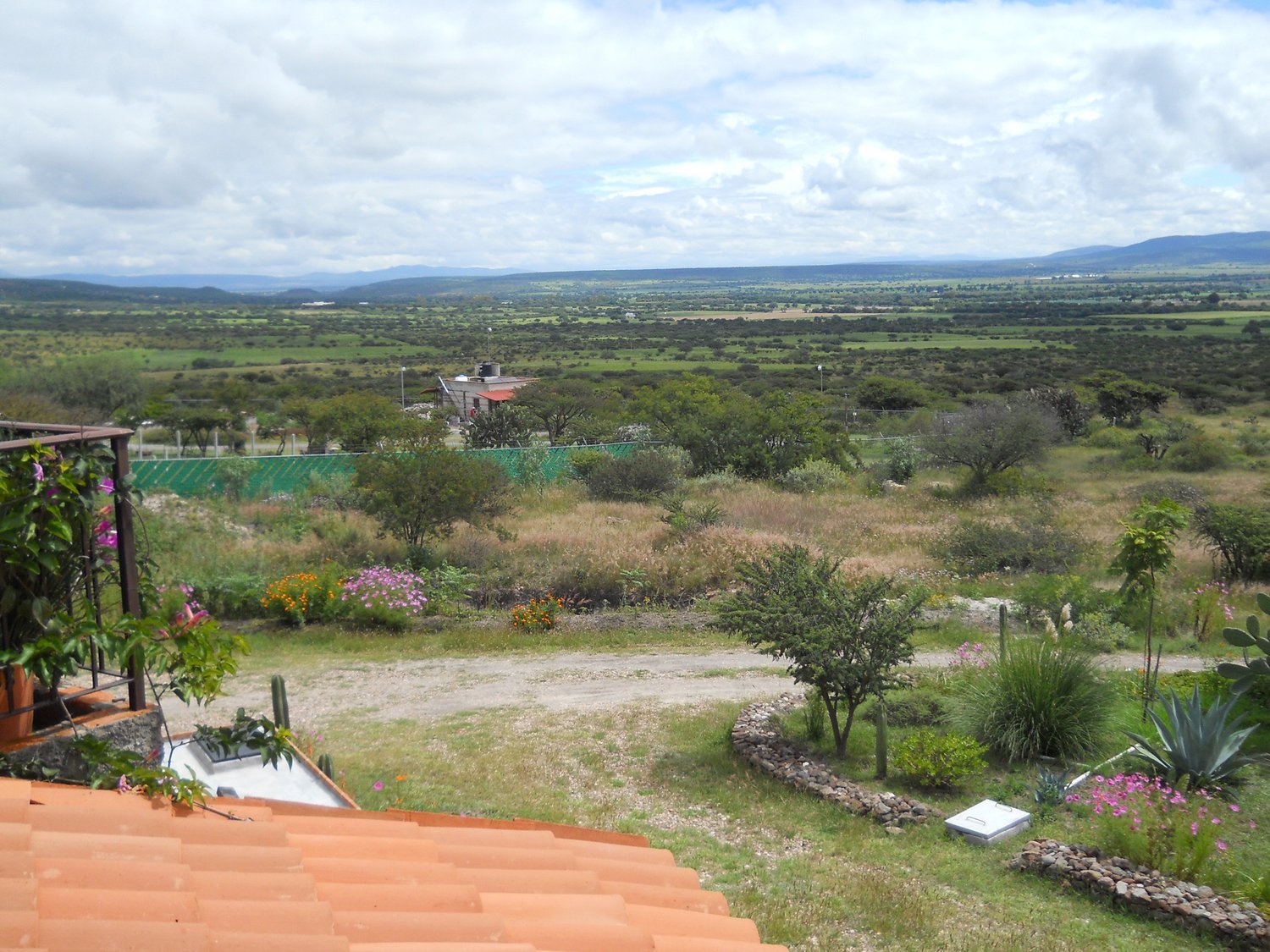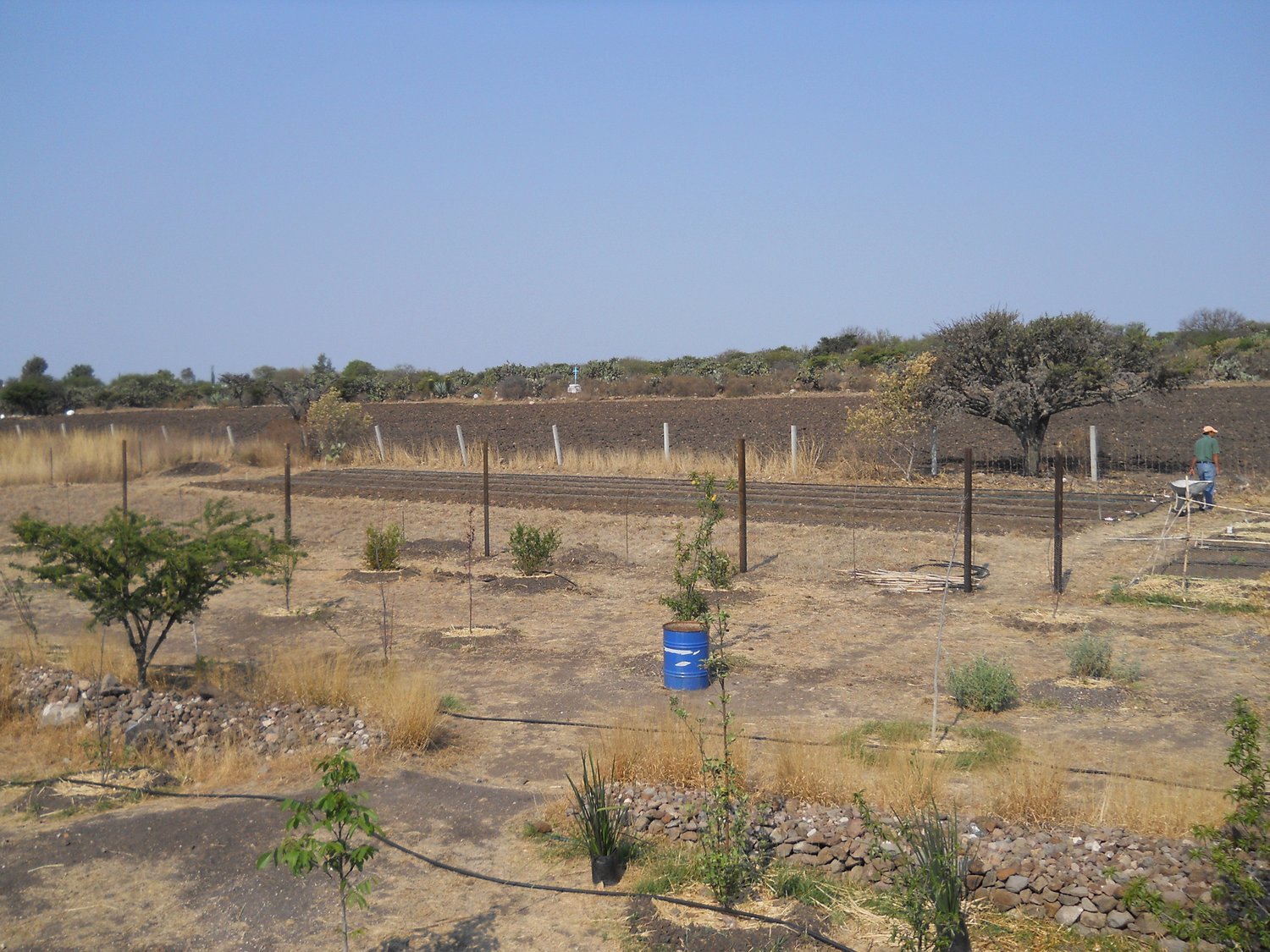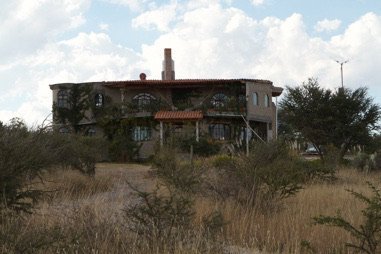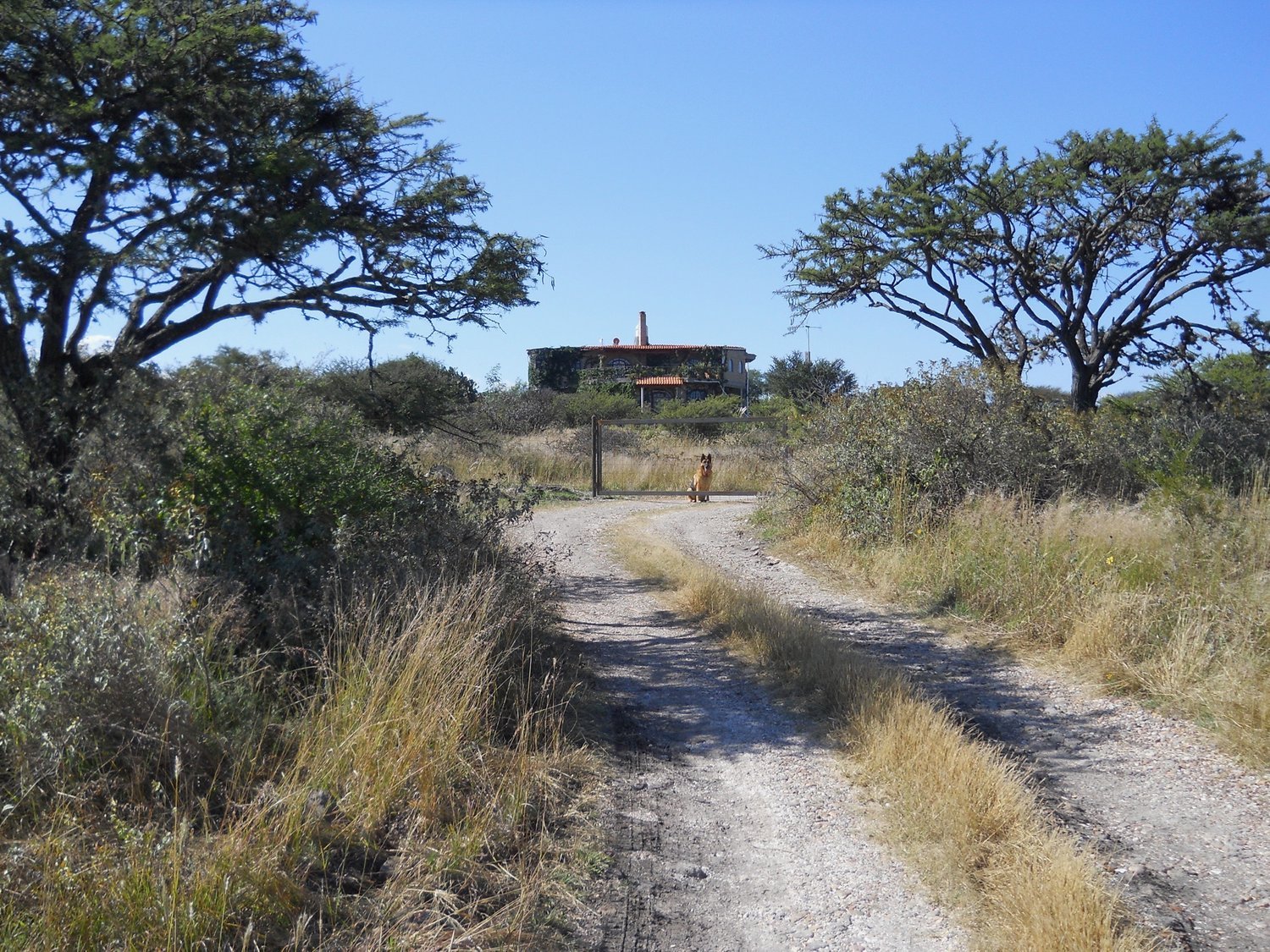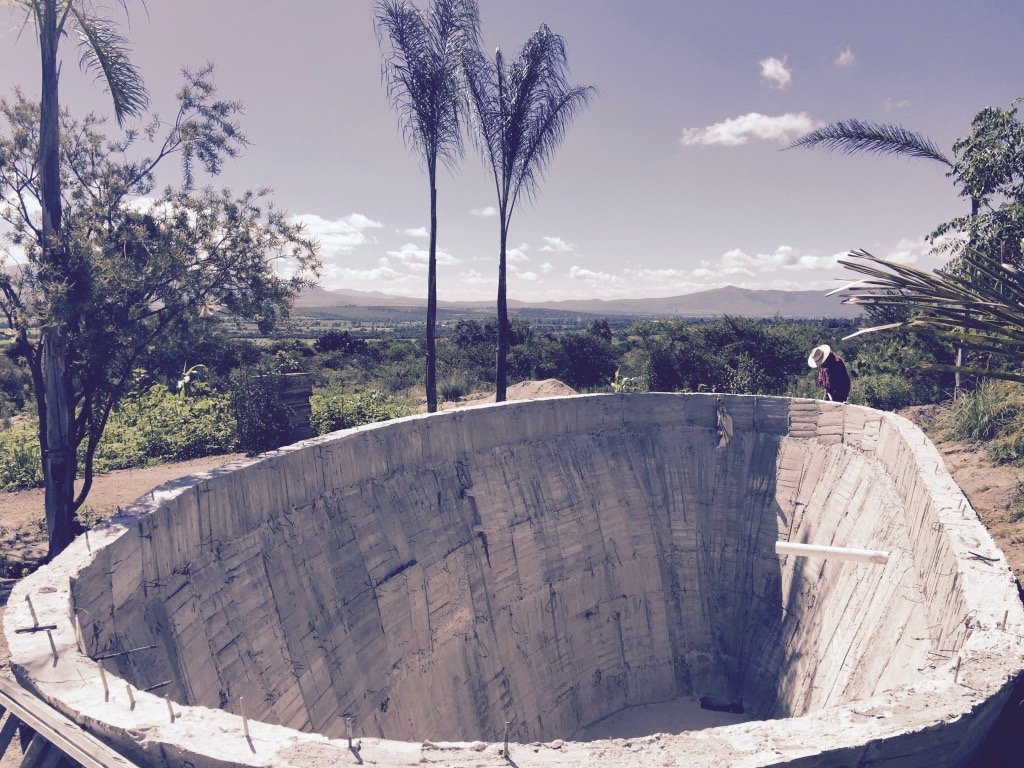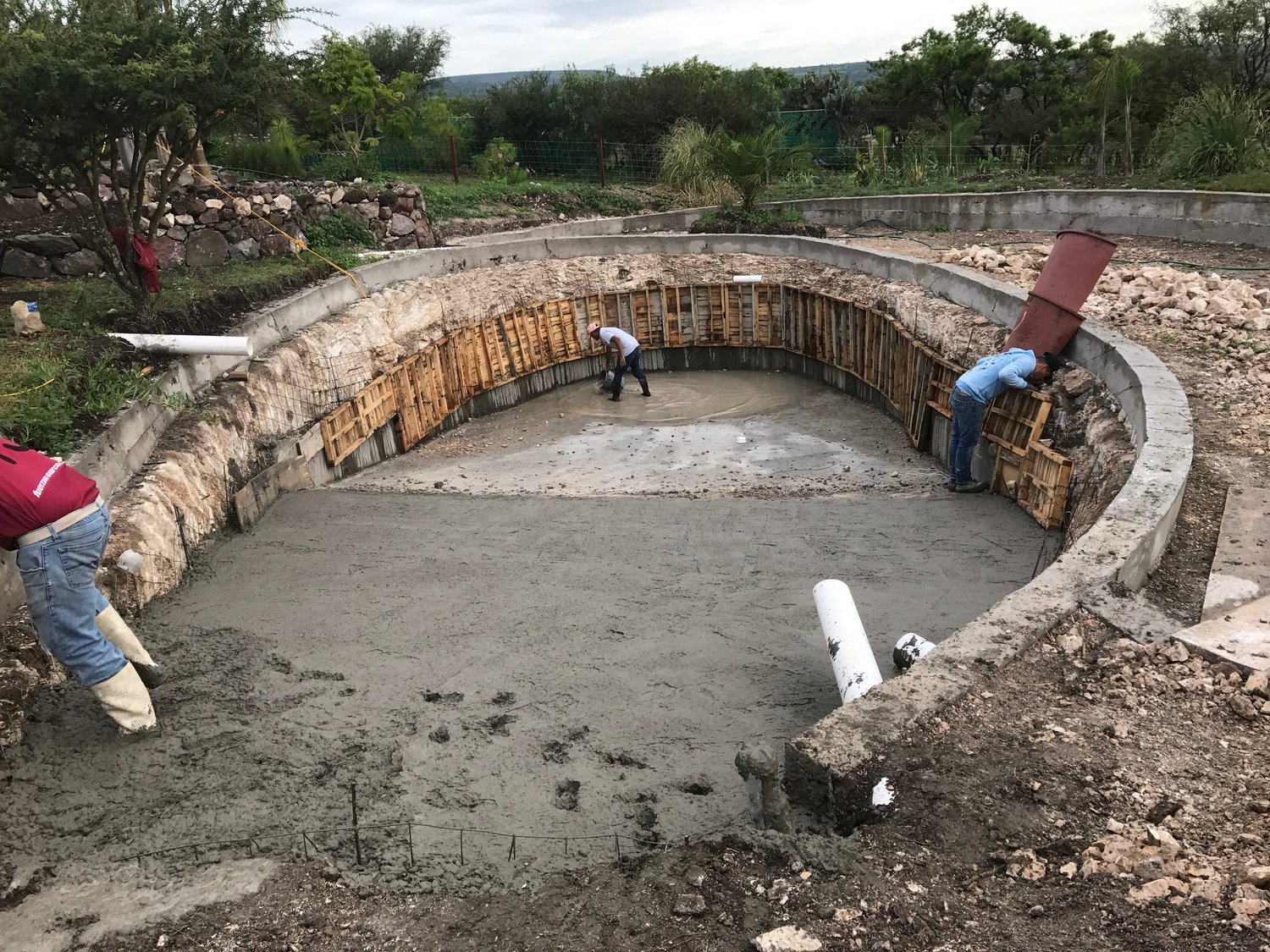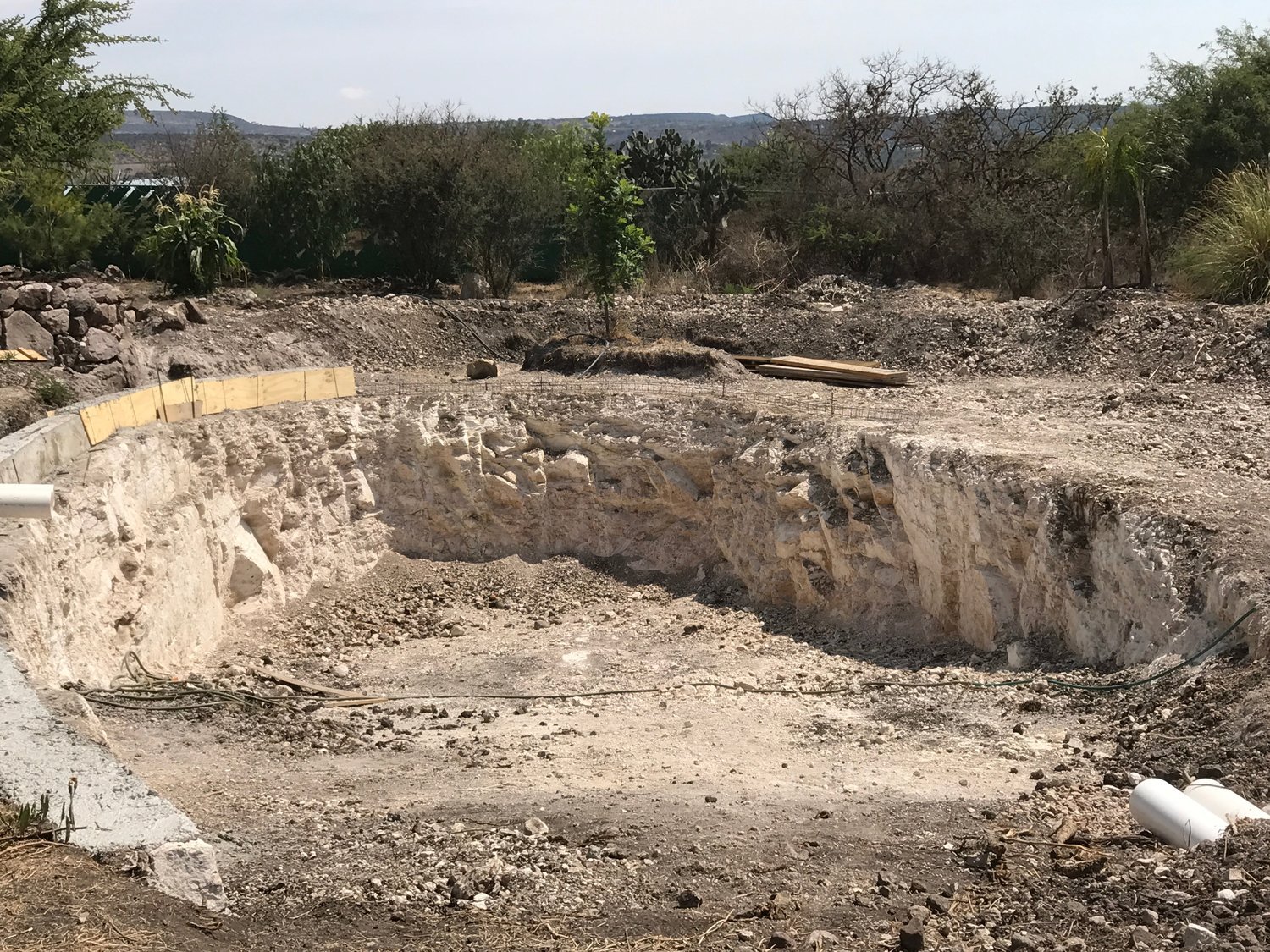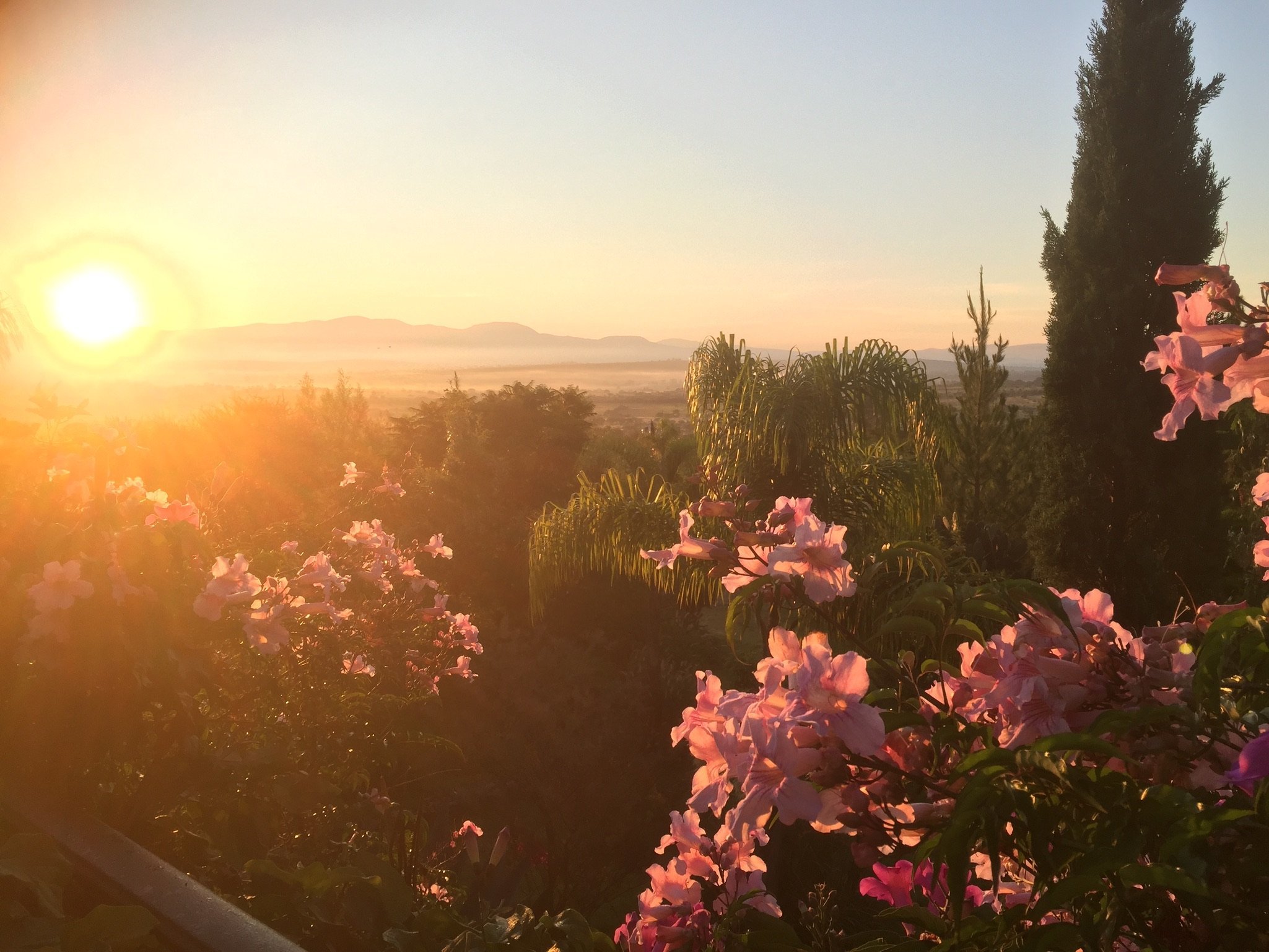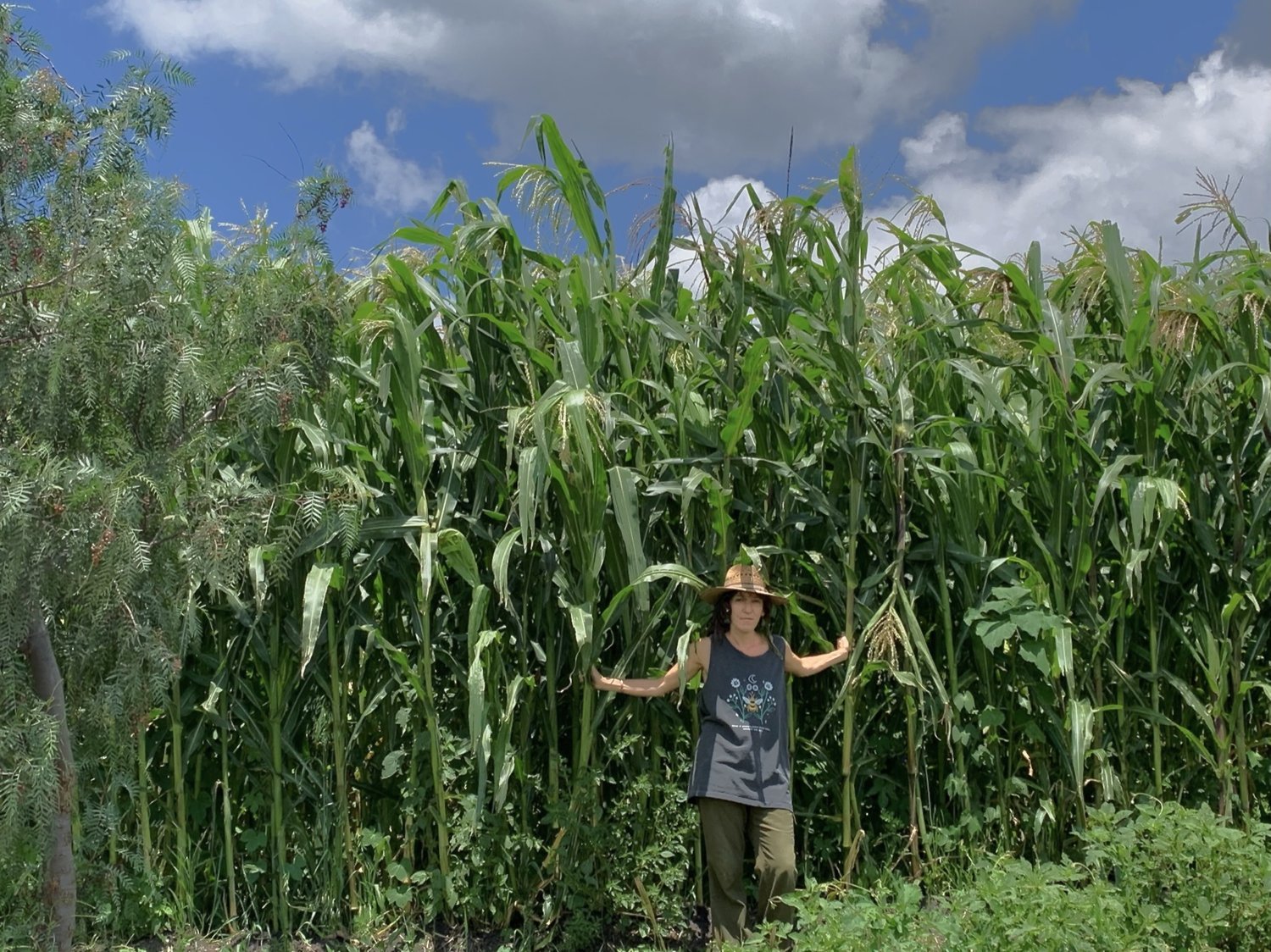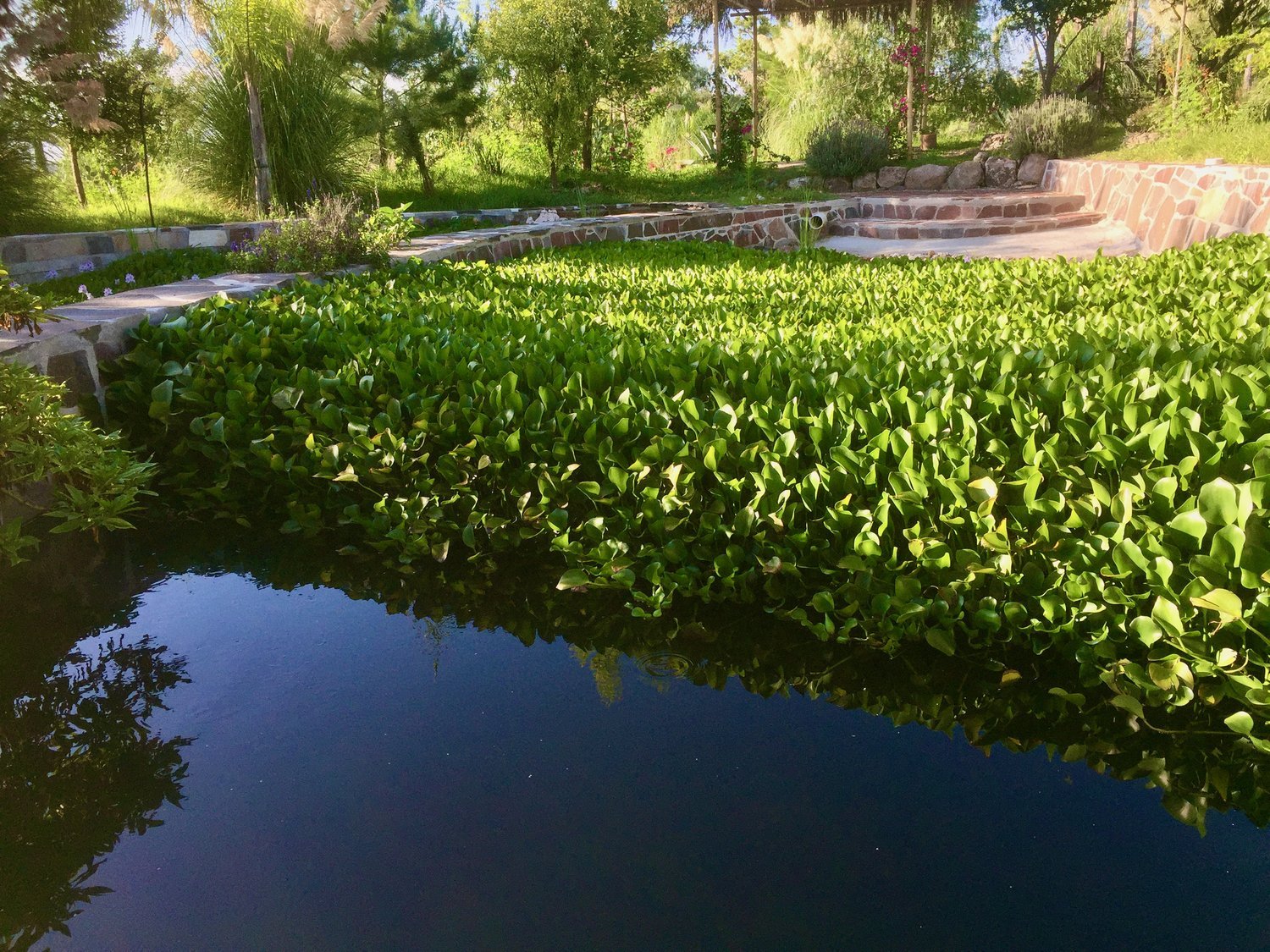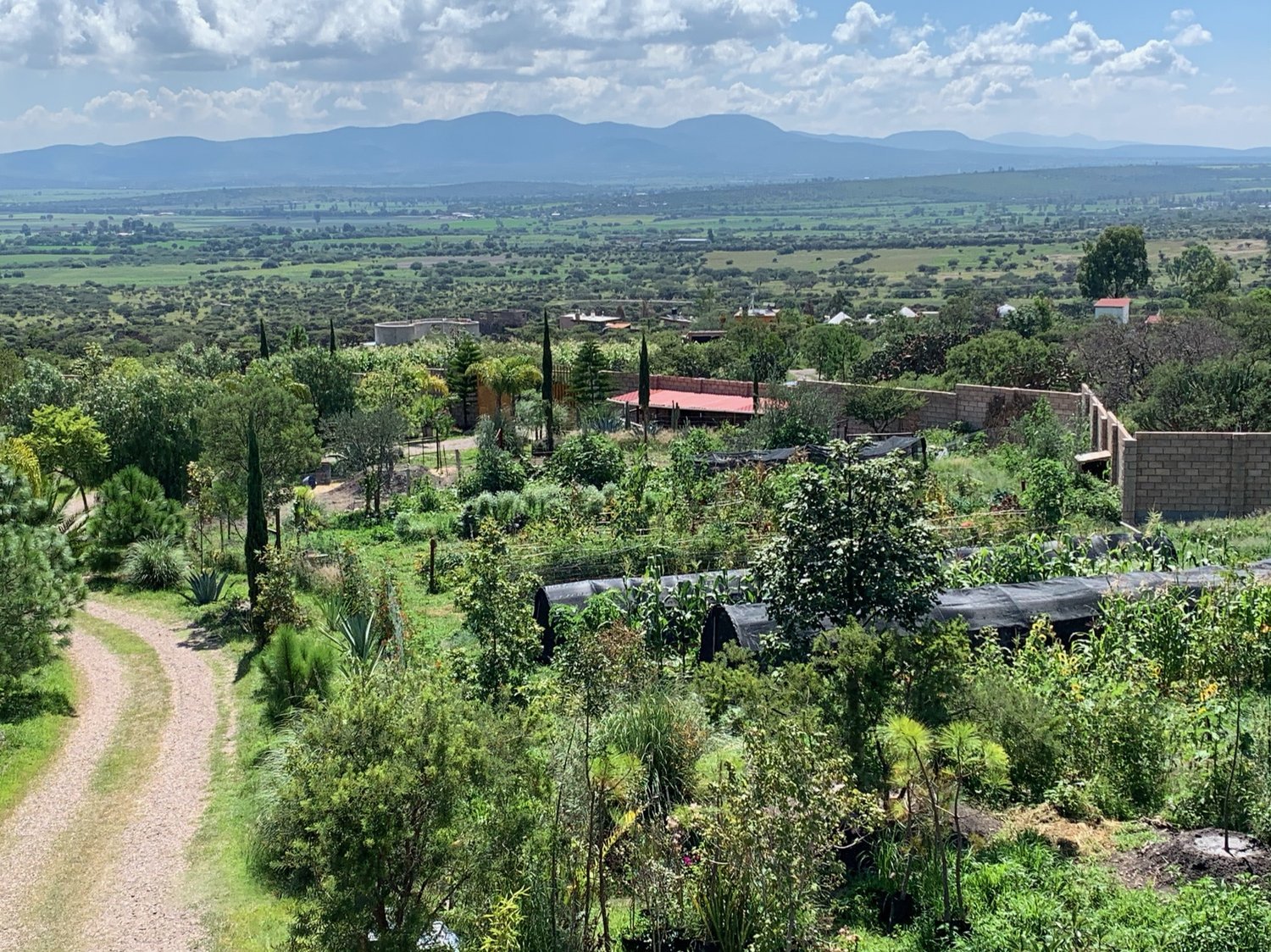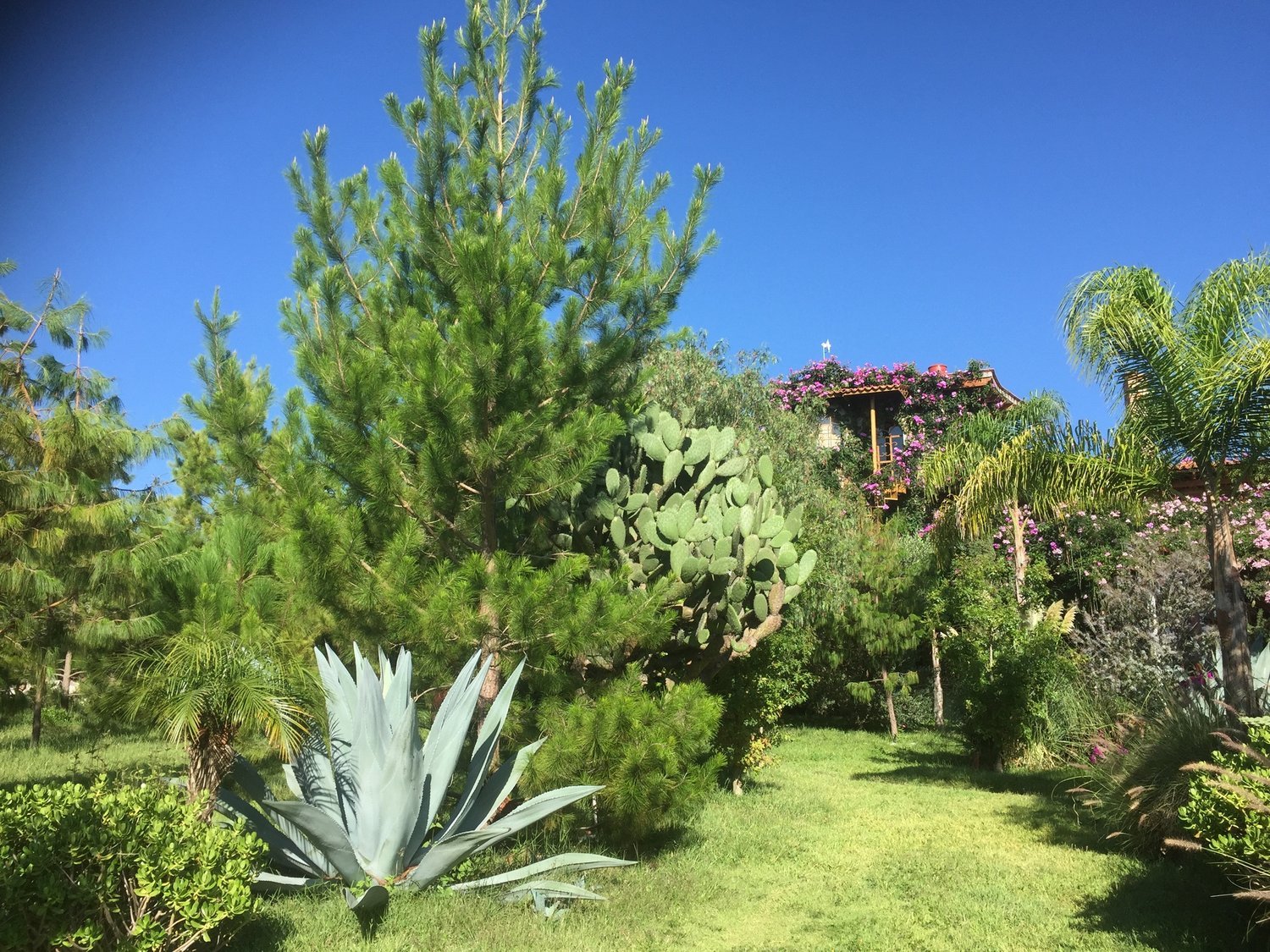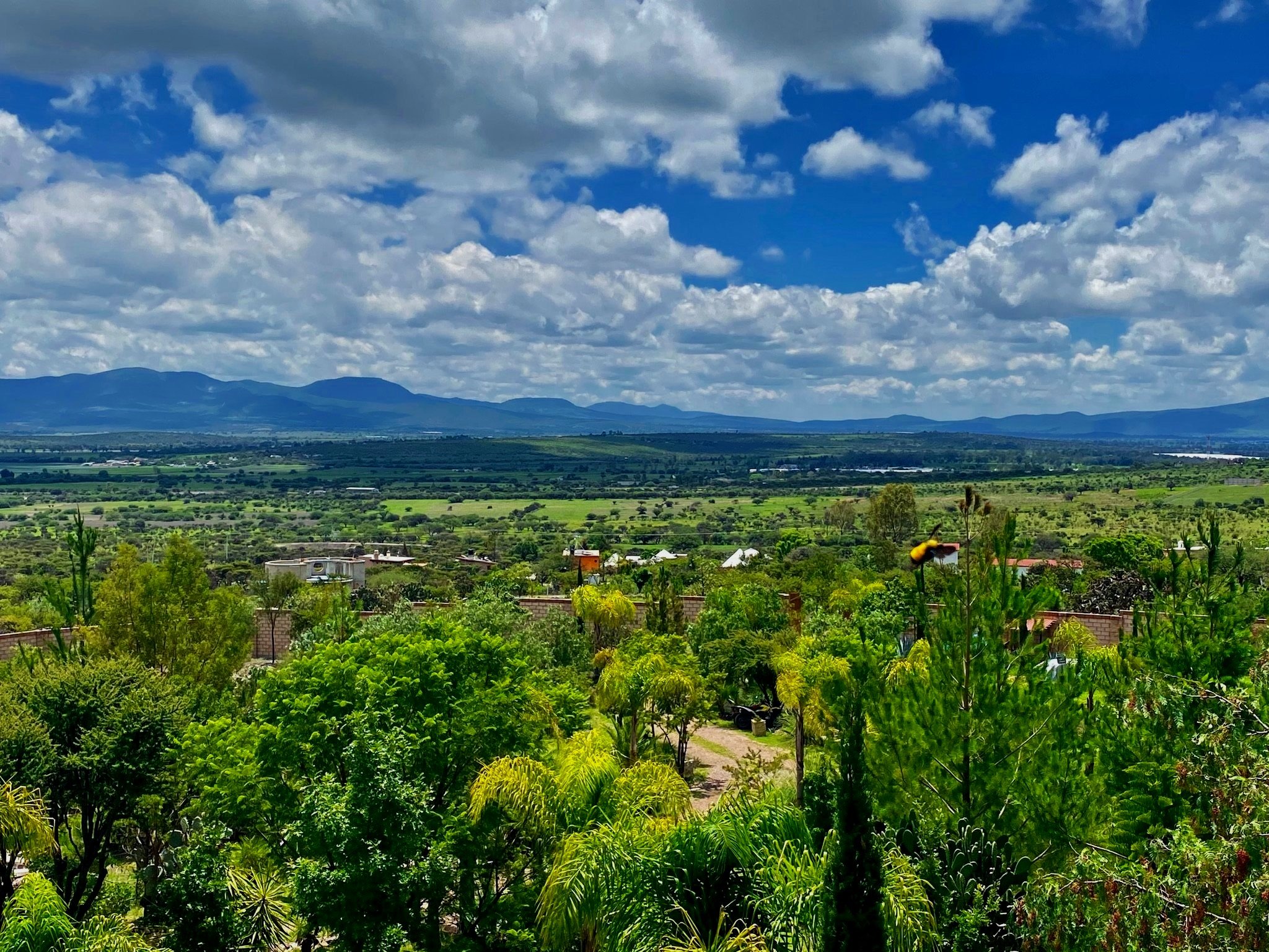
OUR LAND
A story of love, hard work, transformation, and chickens.
Every morning we wake up at Tikkun and watch the sun rise over the valley - typically an astounding display - and marvel at the beauty and intelligence of our evolving planet.
Tikkun was founded in 2008, in the rural campesino village of San Jose de Gracia, just north of San Miguel de Allende, in the central semi.arid highland plateau of Mexico. Our 3 hectares (7.5 acres) were originally depleted and scrubby, with only a scattering of trees, shrubs and cacti. But this is no longer the case!
As we drink our coffee, hummingbirds shimmer and hover about the terrace, carefully slitting the pink petals of the trumpet flowers to more easily reach the nectar. Honey bees leave their hive (located in our chimney) and begin their work in the fields. Wild ducks and herons alight from our pond where they’ve been breakfasting on water hyacinth and stolen fish. Bird families bicker and gossip in the pepper trees. The roosters crow and another gracious day on Earth begins.
For us, every day at Tikkun is the unfolding of small miracles. Entirely new species - of bees, wasps and dragonflies, water plants, grasses, wildflowers, even trees - suddenly appear as soils are rejuvenated, ponds are recharged by rain, and birds drop seeds from other ecosystems. Year by year, we see the bounty and reward from helping Mother Nature repair herself.
Our heroes are the simple people who quietly do astounding things to repair nature. Like the man who single-handedly planted a forest over 30 years. We have not yet achieved such a scale of repair, but we are working toward it!
In the early years, with few resources to invest, we focused on slowly establishing green building sites made of local adobe, plastered with a mix of marble dust, lime and Nopal cactus juice. Like millions of Mexican households, we had no reliable access to water, nor public services or electricity. We installed solar and wind energy, rooftop rainwater capture and cisterns, planted a few dozen tiny fruit tree saplings, and our first small gardens.
As the years passed we developed our soil through worm composting and continued planting whenever funds allowed, installing site-wide drip irrigation systems to conserve water.
Most of our intensive work began in 2016, when we earned enough salary from our other NGO project (advocating for election security in the United States) to invest in the Tikkun land. We then planted hundreds of trees, cactus, shrubs and vines, building contoured swales and berms to capture the annual monsoon rainwater and permeate the soil. We broke ground on a series of interconnected ponds, stocking them with Tilapia and water hyacinth, which provide food for the fish and mulch and compost for the land. With the fish-poop nutrient rich waters, we irrigated our plants and trees.
Today, five ponds and thousands of plantings later, Tikkun has transformed into an oasis. The land continues to enchant us every day as our little ecosystem develops, bringing new species who arrive here on their own … not all of them welcome!
For years we (and much of the San Miguel region) have battled a Biblical plague of grasshoppers who see Tikkun’s lush gardens as a delicious buffet. We tried every natural remedy, but nothing made a dent in the swarms that grew every year. The situation began to appear hopeless, until we started breeding our few chickens with the help of Merlin, Mariachi, and Super Fly - three noble patriarch roosters donated by our neighbor.
In one season, our randy roosters and hens provided us with 150 new chickens. After a few years of allowing them free-range to feast on tasty bugs to their hearts content, we are finally getting the plague under control. Our chickens not only provide eggs and meat and fertilize our soils, they have literally saved our farm.
Today, the land at Tikkun includes:
Three adobe living and working sites
Off grid, we operate only on solar and wind energy
Over 2000 plantings of trees, vines, shrubs, flowers and cactus
A developing food forest and orchard
Over 2 acres of community organic gardens
Extensive earth works and cisterns for monsoon water harvesting
A series of 8 interlocking ponds and water reservoirs
Productive Tilapia ponds
Ornamental Koi/Goldfish ponds
Site-wide gravity-fed drip irrigation
Onsite bee hives
Over 150 free range chickens for grasshopper control and eggs
Two plow horses- we prefer not to use tractors which disturb soils
Seed saving for native and heirloom seeds
Two worm compost systems
Worm compost tea production
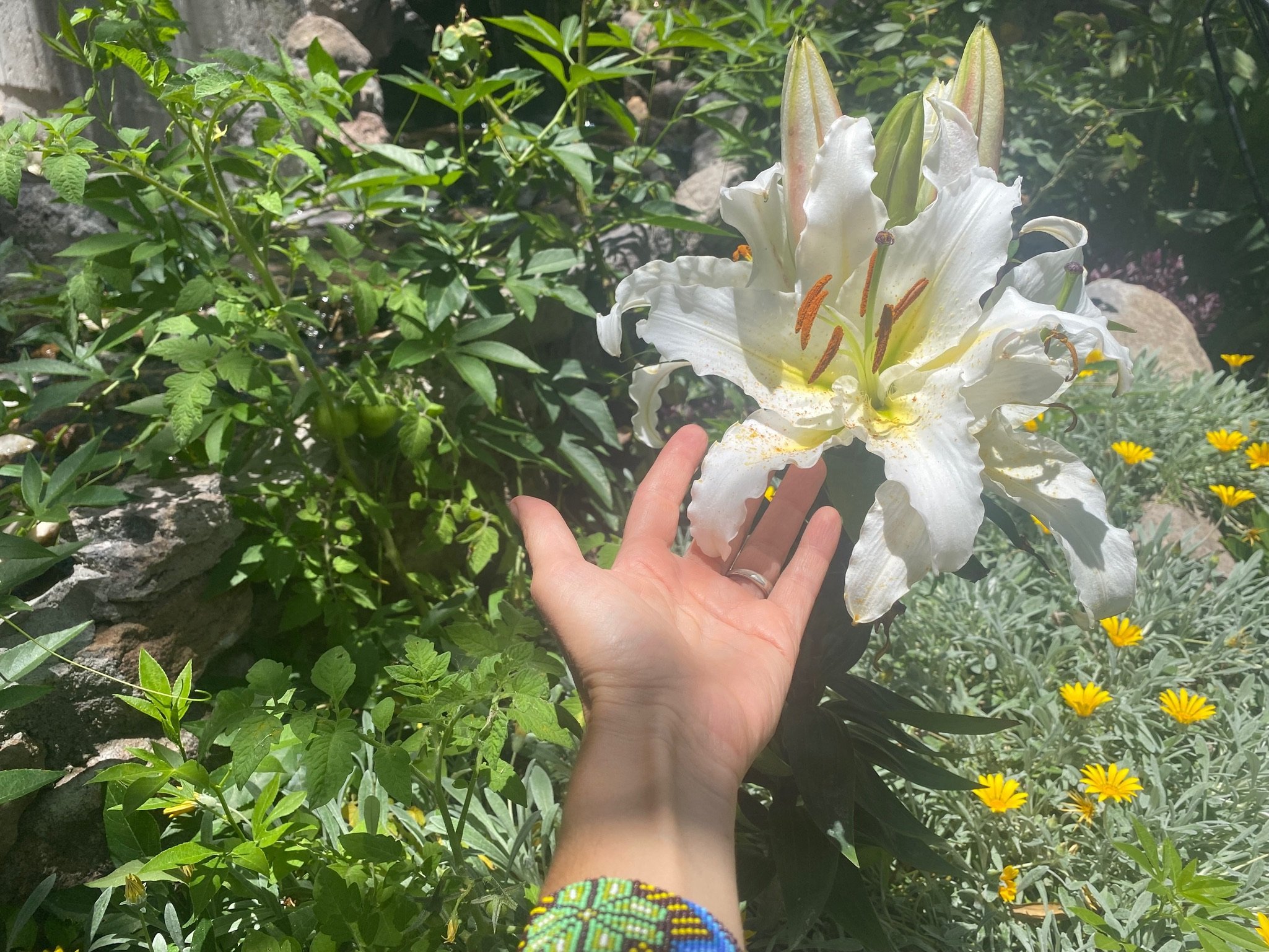
Tikkun: The Early Days
Tikkun: Today

